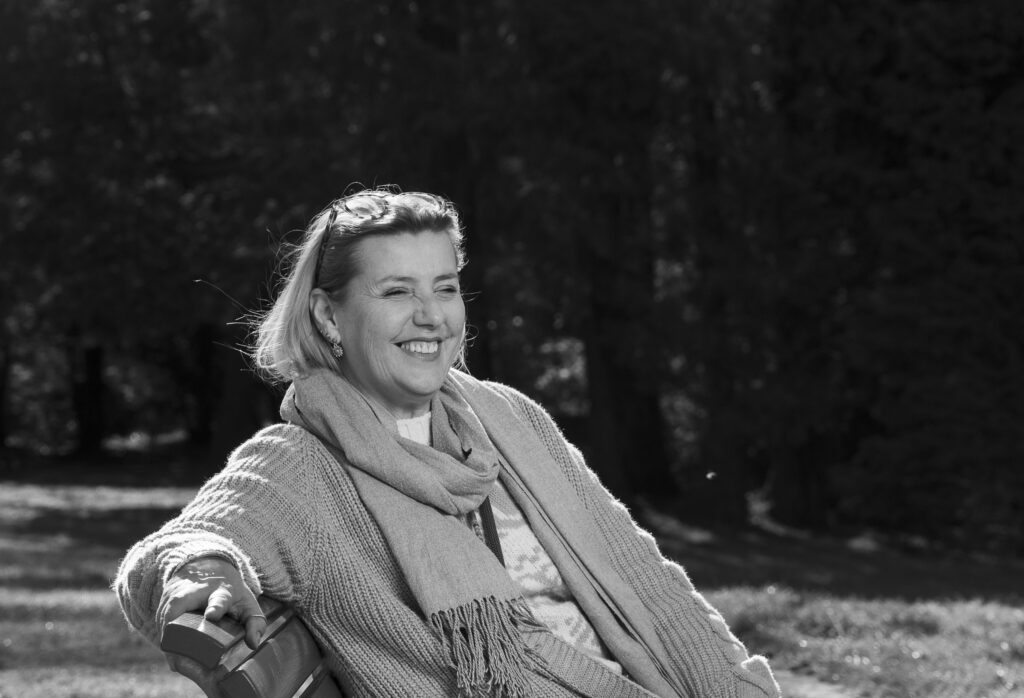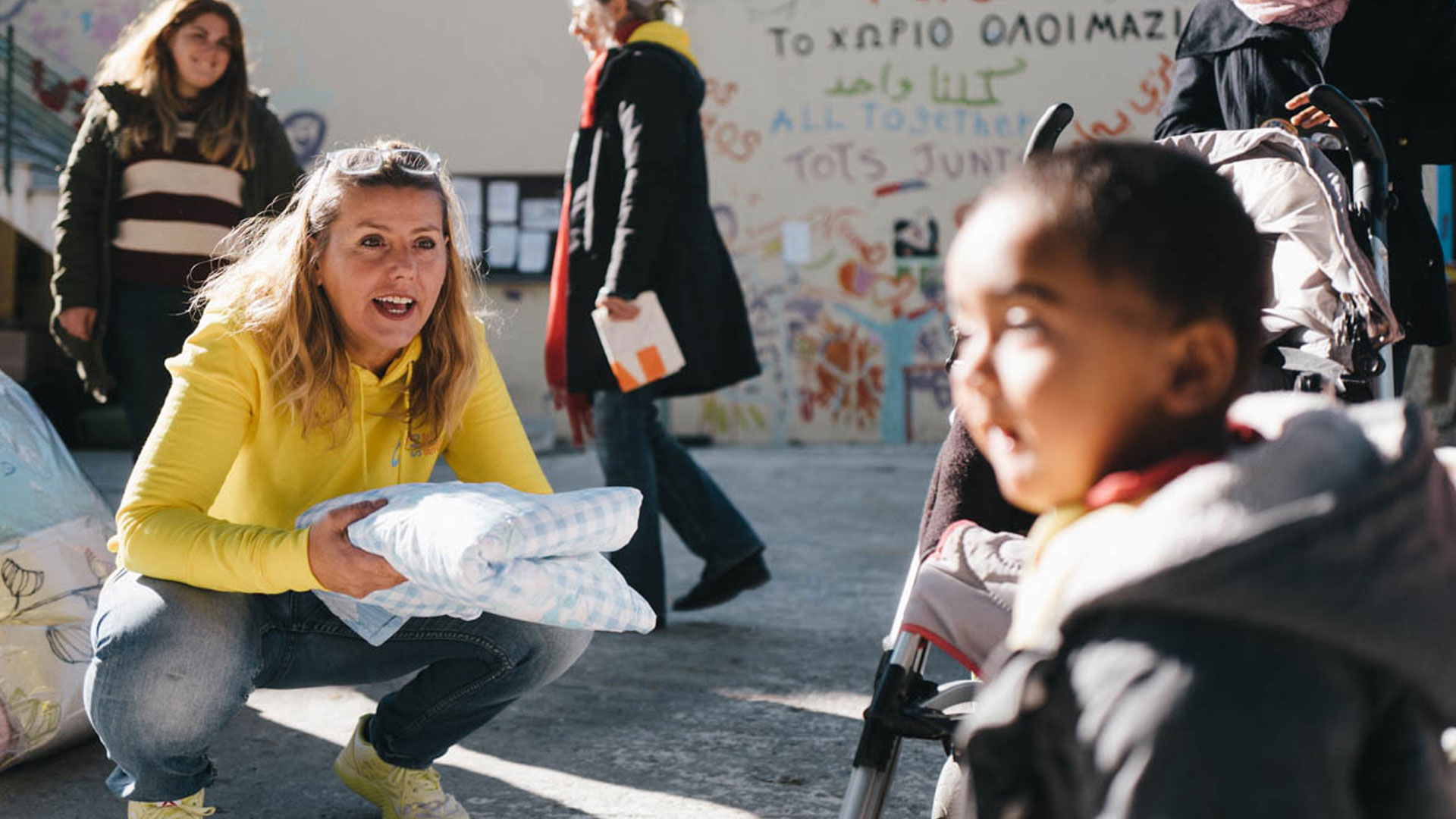Raquel Herzog
Raquel Herzog was born and raised in Switzerland. She graduated from the Swiss Hospitality Business School and soon went self-employed and founded two successful companies in the field of live entertainment.
Shocked by the picture of the boy in flight, drowned on the shores of Turkey in 2015, she left everything behind and started volunteering with boat rescuing on site in Greece.
She founded SAO Association to help with the specialist needs of single women in flight.
SAO runs two day centers for displaced women and mothers with their dependents – the Bashira Centre on Lesvos and the Amina Centre in Athens. Psychosocial assistance, offered by a professional group of women, is provided in a safe space where dignity and equality are safeguarded by all SAO members.
SAO Association supports displaced women on their way to a new, independent, and fulfilled life in their host communities.
Why do you think you are so successful?
I think you could say that I am definitely an optimist.
Of course, it helps a lot to see the positive side, appreciate little steps, and not feel like you must change the whole world, just a little bit of it. But constantly and thoroughly. I think that’s really important. And I also think it’s essential to have a satisfactory private life. To have good friends, a good family, good people that surround you and support you in what you do. As for the actual situation, I think success is never a one-person achievement. It’s always teamwork. Yes, and you cannot have a good idea if you don’t have people joining in with that idea and wanting to create what you think could be done.
The most significant change in my life came when I saw the photograph of that 3-year-old boy who died, drowned in the sea, trying to cross with his parents from Turkey to Lesbos in 2015. I was shocked by this picture and felt like I could no longer be outraged sitting in front of a TV screen or behind my computer. I needed to do something about it and went to bed that night and then got up again and was upset about what I had seen. It struck me a lot emotionally, and then I just blindly booked a ticket to Lesbos and decided I would go a month later to volunteer there. Four thousand refugees were arriving daily on the island, and it was winter, so there were lots of kids with hypothermia; it was tough. That’s where I stayed, and everything evolved from there.
The organisation SAO (In Greek mythology, SAO was one of the 50 Nereids, marine-nymph daughters of the ‘Old Man of the Sea’ Nereus and the Oceanid Doris.) had the task of protecting and rescuing shipwrecked people in dangerous waters.
Daily, displaced women, mothers, and young girls are exposed to significant risks and gender-based violence. Many are traumatised and suffer long-term effects from the abuse experienced. SAO helps these most vulnerable women.
What is the impact of art and nature on your life? How do you recharge?
I like to move a lot; I have a dog. It’s nice to walk with the dog and be in nature. I am swimming in summer and things like that. That’s where I recharge, out in nature. It is beautiful.
I don’t have any talent for art, but I like art. You can still profit from it; it doesn’t matter. I believe I have a schooled taste because I was very often drawn to museums and so on as a kid. I was taught much about art and enjoy it, but I am entirely free of talent.
Talking of the future and these women, do you have any advice to offer?
I think the advice you could give to people who are not affected by this topic is to see refugees not as refugees with a ‘refugee’ stamp on their foreheads, but as people you meet.
Because the fact that they are refugees is just a part of their story, there’s a life before that. We have many clients who say that they had, for instance, a happy childhood. But one day, there was a considerable impact that changed that. But they’re seen forever after just as refugees and not so much as individuals anymore. When we met today for the first time, as neither of us had that ‘refugee’ stamp on our foreheads, we were interested in each other and talked to each other. I think it gets lost when one of the people has that refugee label. That’s a pity. So, the advice is to meet people, human beings, fellow men and women. All these prejudices, combined with ‘that stamp’, are immensely hindering.
You have ideas about what refugees from a particular country might be like.
That’s also very sad because they are mothers, brothers, sisters, whatever. And also, people from one nationality are not all the same. We tend to think about people of one nationality in a very general way, but we wouldn’t want to be seen as a Swiss stereotype as Swiss people. It’s not very nice. And another stereotype about refugees, I think, is that they’re victims. But how we experience our clients is that these women have extreme resilience. When I hear those stories, I often think, ‘I would not have survived that.’ Impossible. But they do, so they are actually survivors more than victims, and then you change your attitude.
Because then you don’t have a person in front of you who is helpless, but somebody who is very strong and maybe needs assistance just in one matter. Like me, I need assistance to do my tax declaration because I’m terrible at that. So, maybe it’s a bureaucratic thing, perhaps a language thing. Still, it’s not that one helpless person needs all the help in the world – that’s also quite a colonial view of seeing assistance to a group of people as denying their dignity. And then you get into this attitude of pity, which is always wrong.
You have to have empathy.
What is your utopia?
It sounds a bit stereotypical, but really, peace. Truly, peace. I think it’s even more important nowadays with what happened in Europe last year. I’m very much involved with, not with, the direct impact of war but with the secondary effect, and that is already horrible. You can’t imagine what it is like in a war zone. I think it is destructive over generations, not having peace. And therefore, I think the best utopia could be peace. Yes, Peace!
Watch the full interview with Raquel Herzog
We had a talk in March and the whole topic was, for me, so new, moving and sort of heart-breaking. When I reread and reviewed our video, I thought that the end was inadequate. I was just hinting at your website because I just had to end the talk. So I asked you if we could finish this talk about you and SAO in a really good way and talk about you and about SAO and how it all began?
I think the biggest change in my life came when I saw the picture of that 3-year-old boy who died, drowned in the sea trying to cross with his parents from Turkey to Lesbos in 2015. I was so shocked by this image and felt like I could not simply be outraged in front of a TV screen or behind my computer. I really felt that I needed to do something about it. I went to bed that night and then got up again. I was really anxious about what I had seen. It really struck me a lot emotionally. Then I just blindly booked a ticket to Lesbos and decided I would go a month later to volunteer there.
There were 4,000 refugees arriving daily, daily, on the island,. It was winter, so lots of kids with hypothermia. It was really tough.
That’s where I stayed and founded the SAO Association, and everything evolved from there. That’s the main topic of my life at the moment. That’s how I came to this whole Syrian refugee crisis on the shores of Greece. Not exactly doing sea rescue but I worked on the welcoming boat for refugees that were coming to Lesbos.
On a particular evening we were searching for a boat and its people for hours.
Suddenly a young woman rushed out of a garden gate and came to the car and said, ‘Can you help us?’ in perfect English. ‘Can you help us? We need to go to the camp.’ This young woman was Ruha, she was 23 years old at the time. She told me that she was with her 93-year-old grandmother and two siblings. I was completely shocked that someone that old had to flee war.
Often, when you receive a boat, you just make sure everyone gets dry and warm really quickly, and then move on, so you never make a special connection. Of course, you remember some faces and so on, but you never make a connection.
But eventually it ended up with me living with them for four months because Grandma could not be hosted anywhere with four older granddaughters. So I just decided to rent a bigger apartment and live with them.
This situation was a complete eye-opener to the situation of women on the run because before I’d never thought about it. I had only been involved with this work for half a year, I was on these shores and there were people coming who were all in need. I didn’t specifically pay attention to women. Of course, you pay more attention to kids because – It’s natural, as a mother, obviously. Also you think if my child was in this situation. But then, I went to the camp with Ruha regularly and we started to speak with women to find out what their situation in the camp was like. And that was actually quite terrible because there are fake protection zones, For instance, there was a zone for single fleeing women, that was locked, with a big fence. But the sanitary facilities were outside. So, if a woman with a towel comes out of that zone, it is clear for every aggressor that she has no protection. Then the sanitary zones were mixed. There were a lot of women from Afghanistan and Syria at the time who are not so used to being so close to men, it’s not the same situation as it’s another culture.
The population in this camp started to increase, increase, increase, increase, and at one point, you have a camp with about 2,500 beds, and sanitary facilities for about 1,800, and you have 21,000 people living there. In a huge, wild camp around it. Obviously hygiene was a big issue, food was a big issue, criminality was a big issue. At night, it’s never silent. There’s always a fight or a child crying.
94% of single women fleeing are raped, assaulted, or harassed.
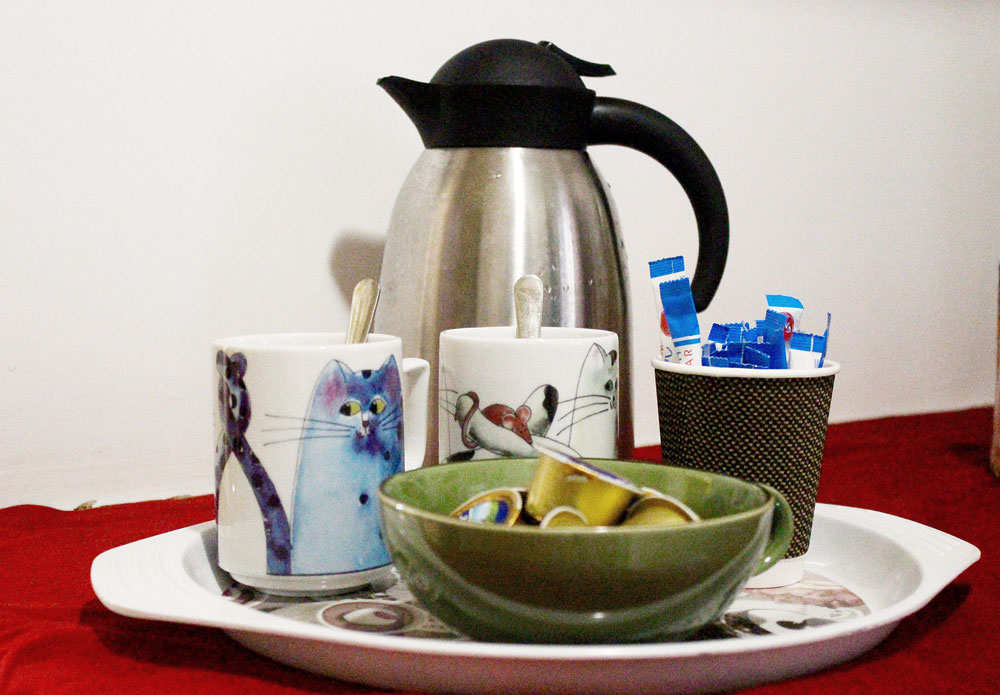
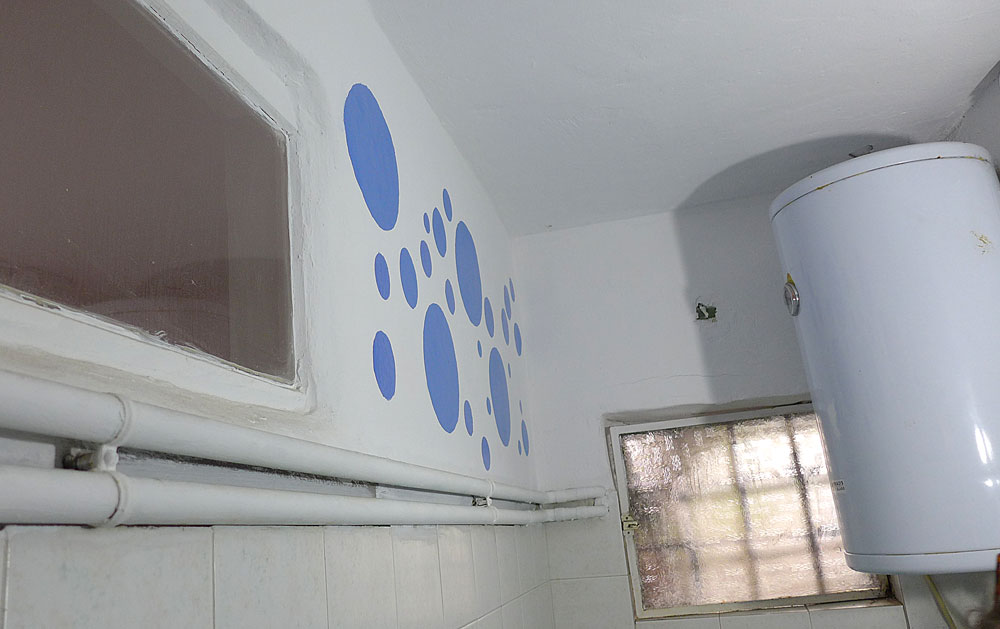
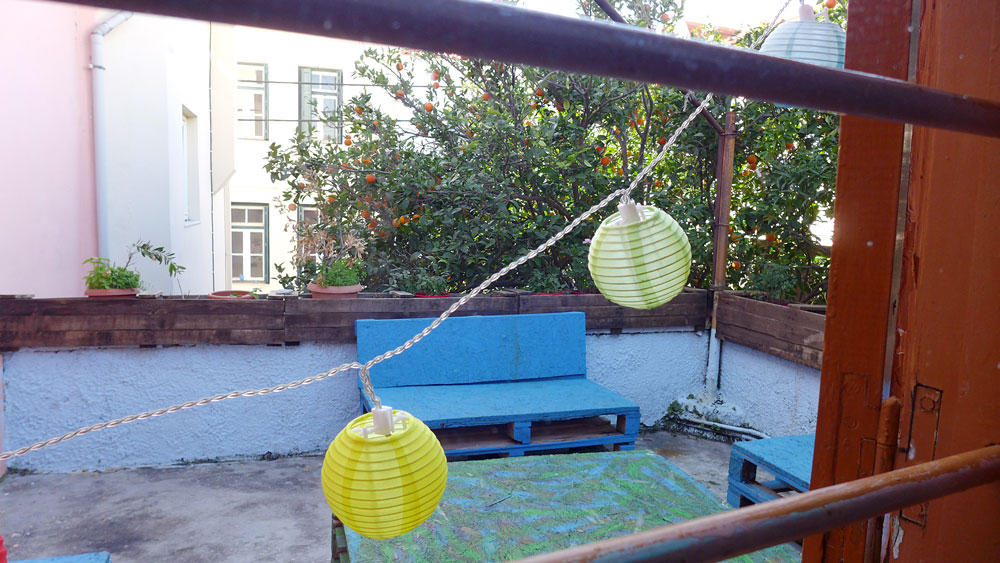
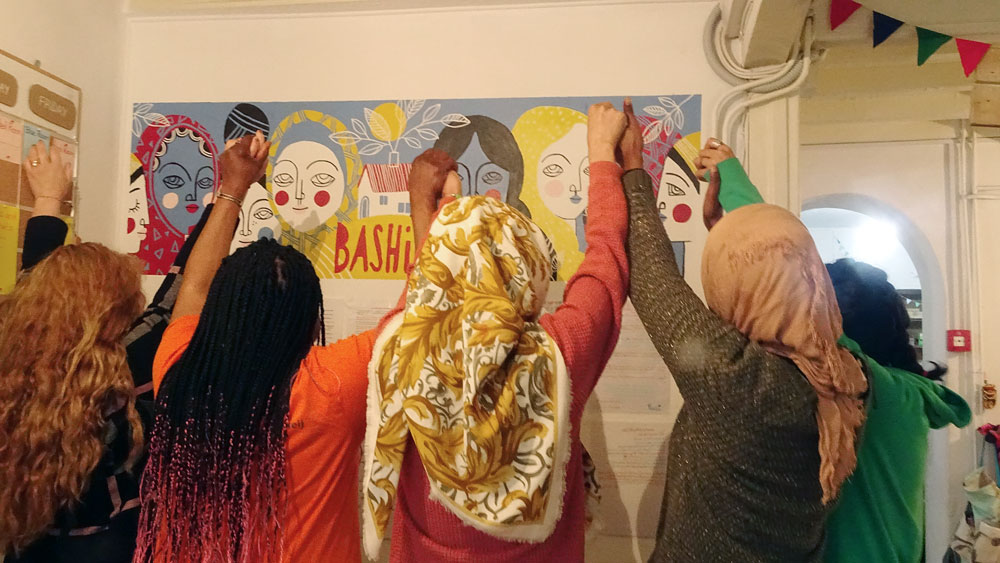
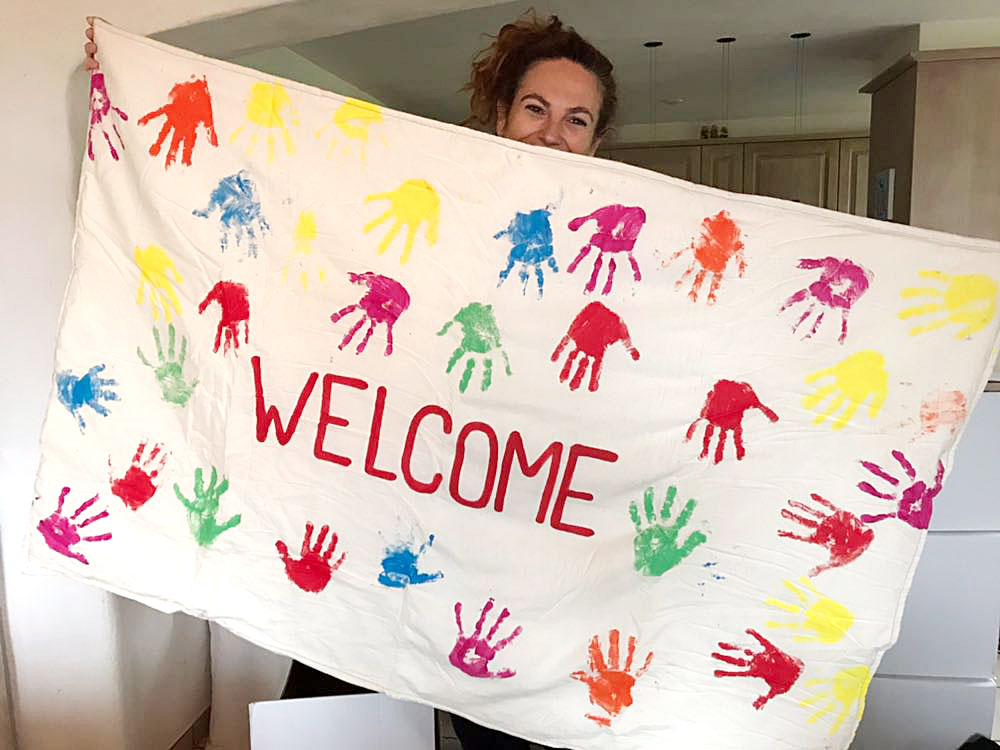
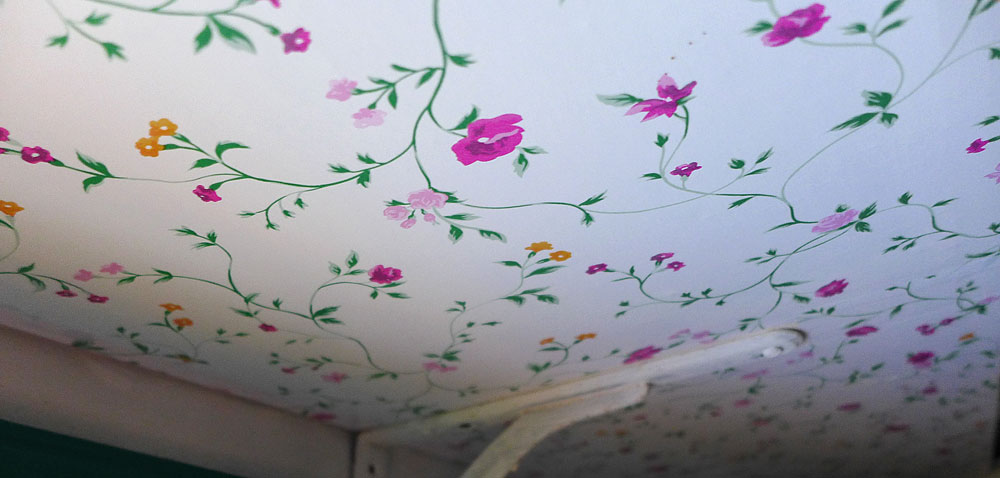
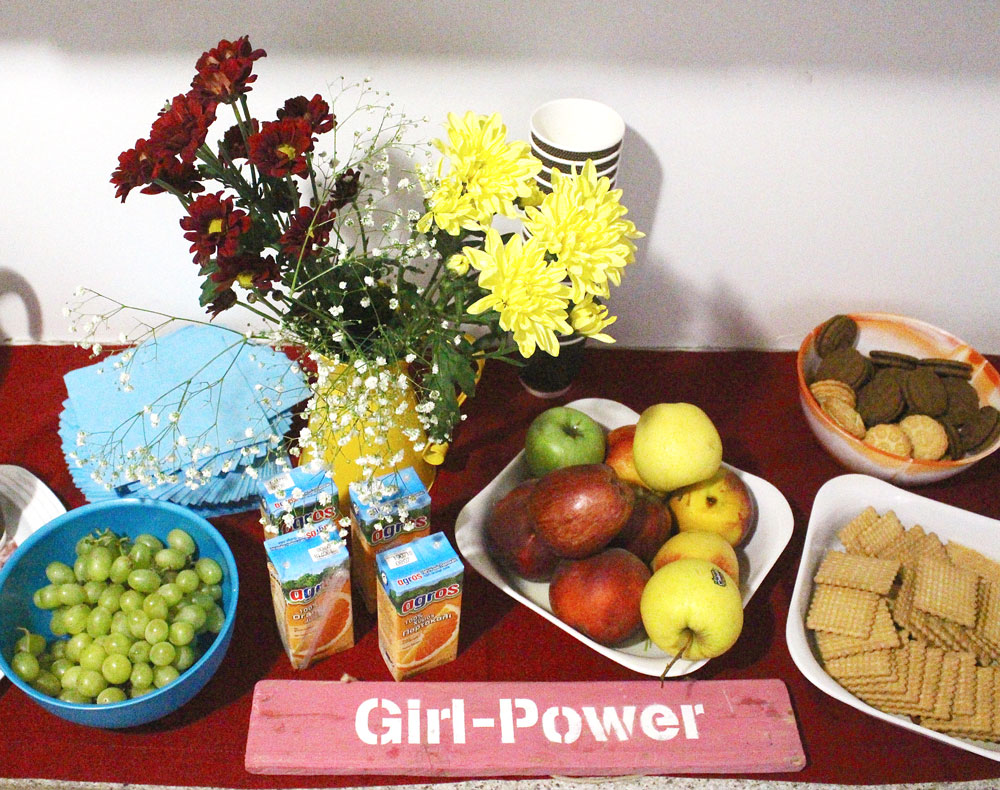
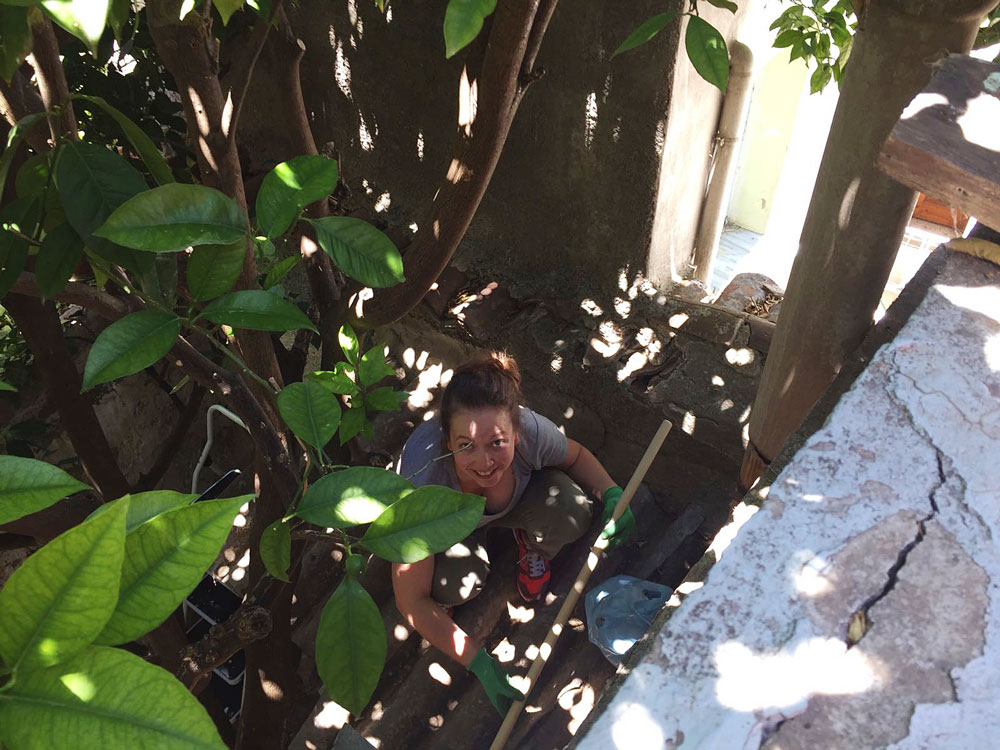

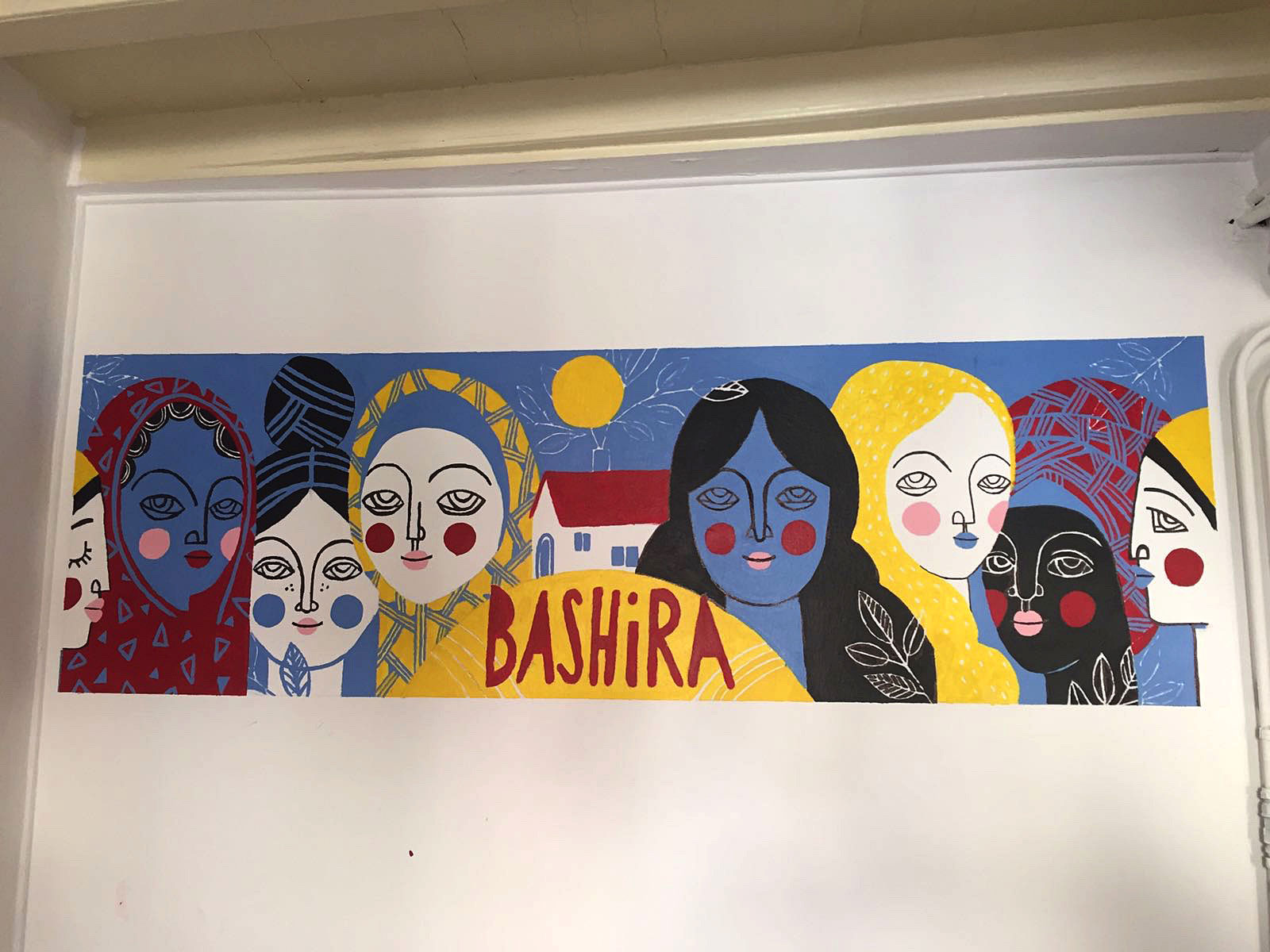
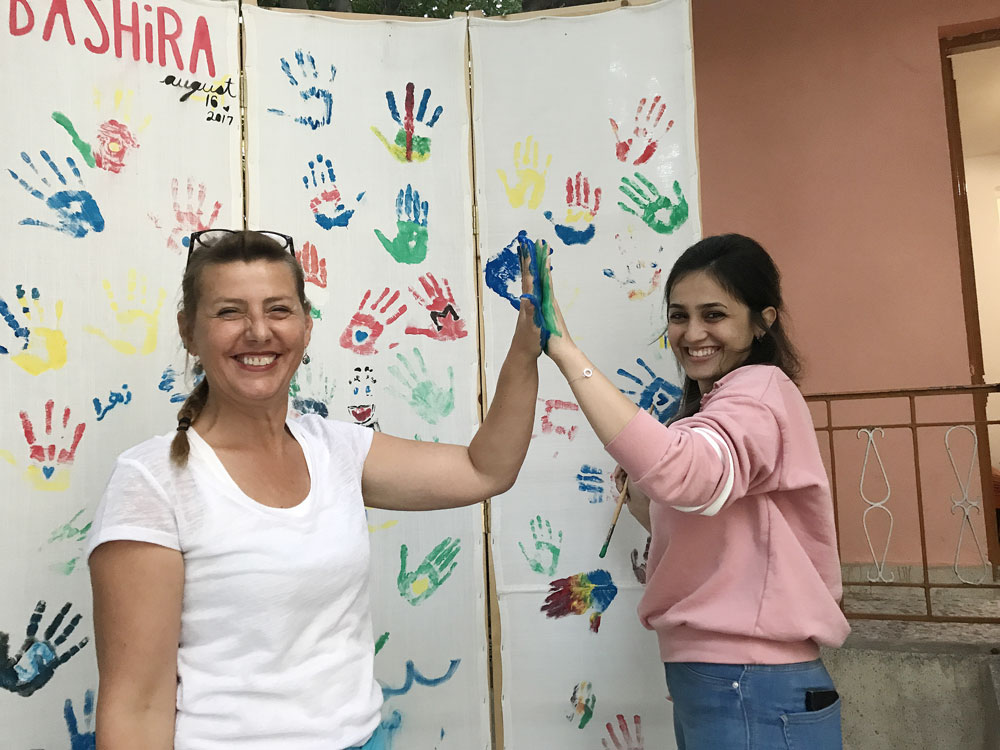
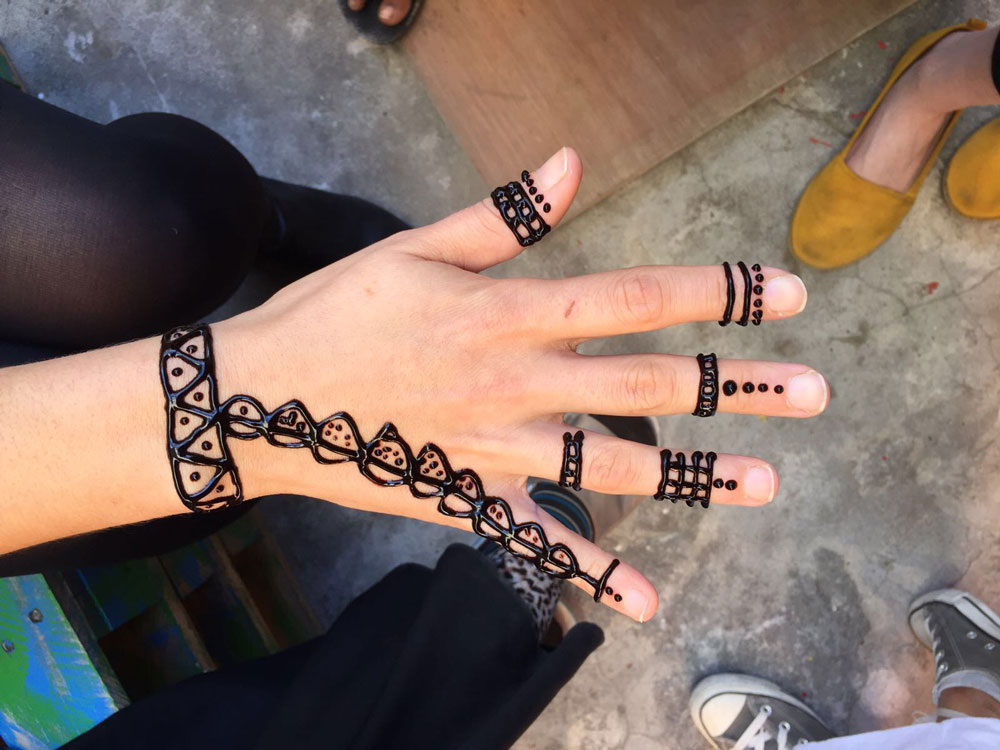
Women who flee without the protection of a man, without an accompanying man, are in constant fear of being attacked, there are such a high number of assaults. The problem is that gender-based violence is already an issue in the country of origin. Sometimes it’s the reason why women flee. Obviously, in an armed conflict, this increases. Then while they are fleeing, even more. Because when you’re a single woman and you’re fleeing, you’re fleeing without any financial resources. That means, on the way, you could even be forced to sell your body in order to save yourself and get somewhere further, and so on. So that’s why this number is so high for single fleeing mothers.
We felt that most of the women just wanted a place to get relief from this stress. And that was basically the reason we said, okay, then let’s find a place where these women can come to, and they know that the moment they enter that door, they don’t need to have their antenna out and think, ‘What will happen to me next? How do I not put myself in a dangerous situation?’ They really calm down and relax,
So, we started with sea rescue, or receiving refugees on the shores of Lesbos and ended up founding SAO:
Strong and resilient women become extremely vulnerable when forced to flee from conflict in their homeland.
On a daily basis, displaced women, mothers, and young girls are exposed to great risks and gender-based violence. Many are traumatised and suffer long-term effects from the abuse experienced.
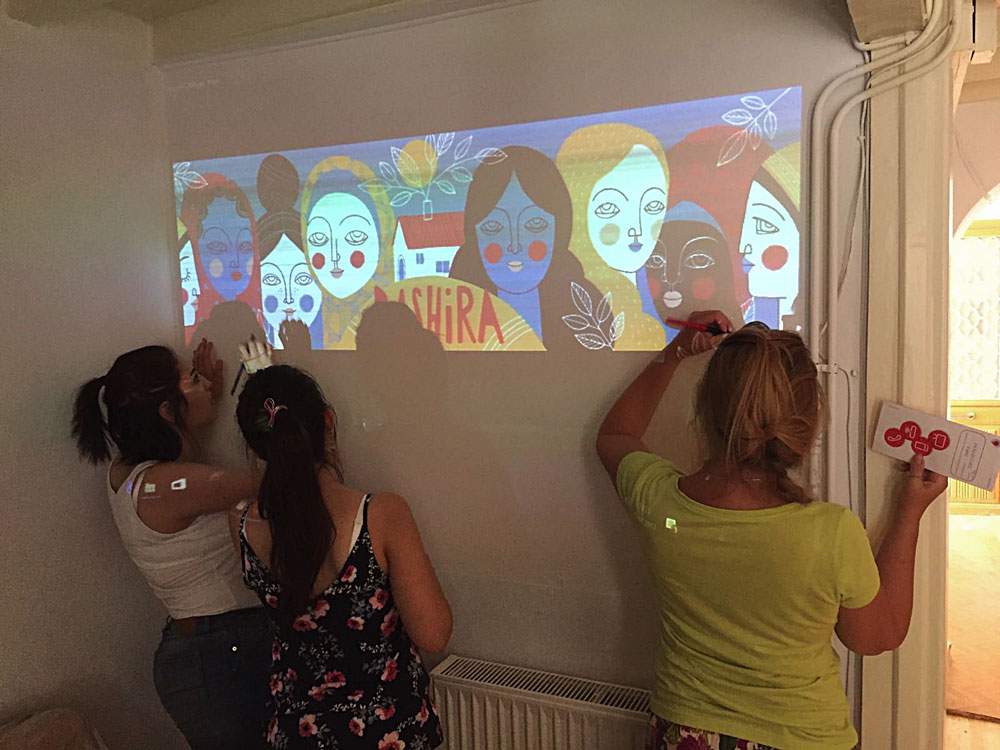

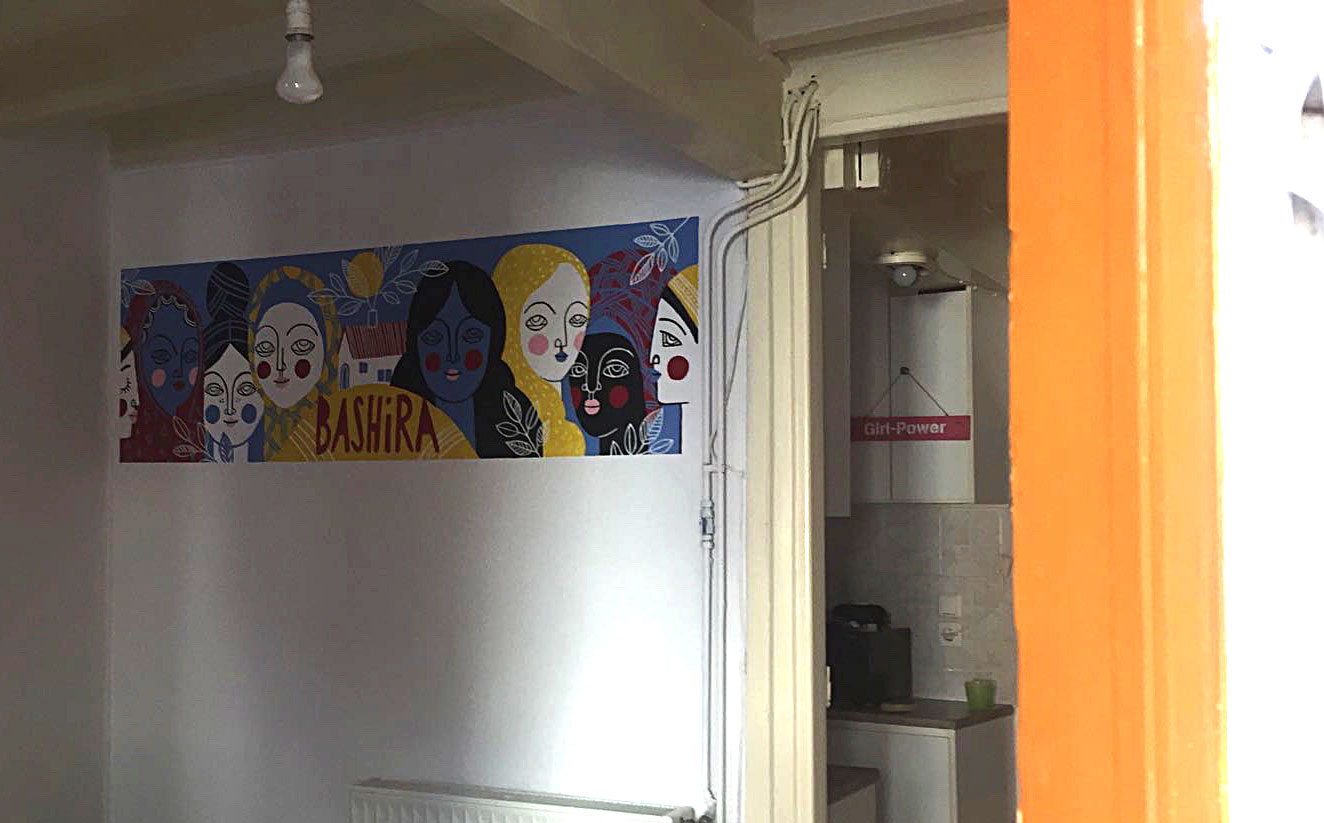

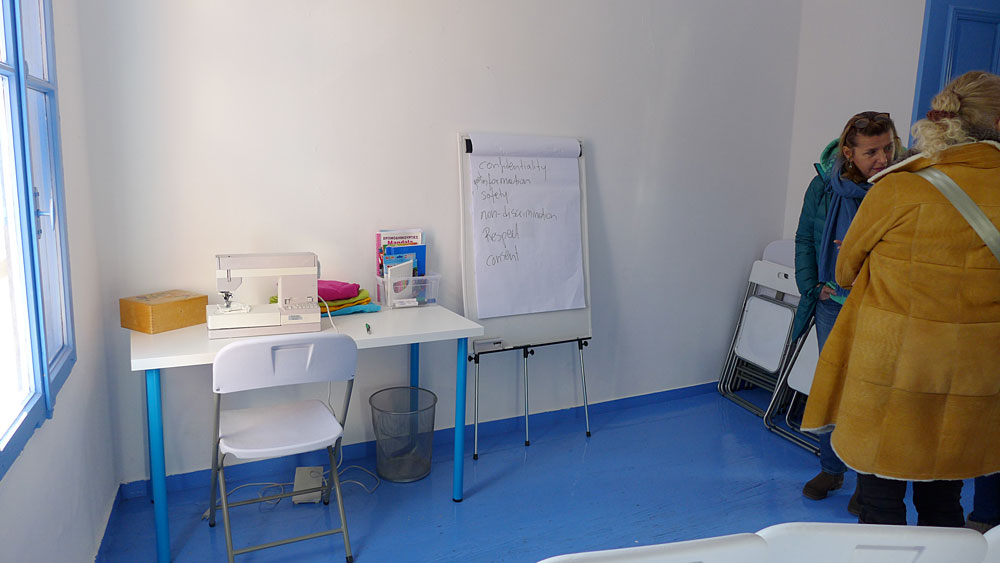
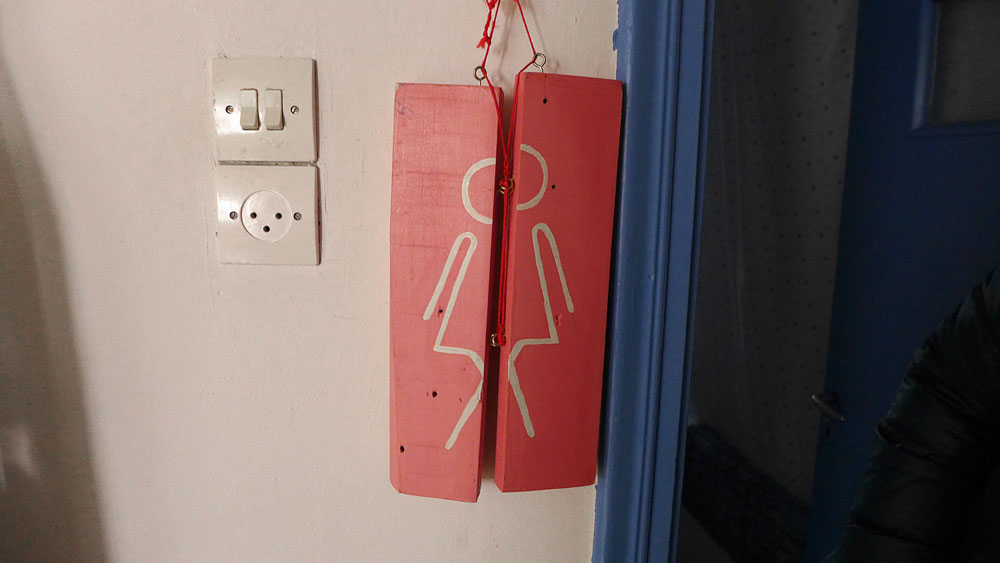
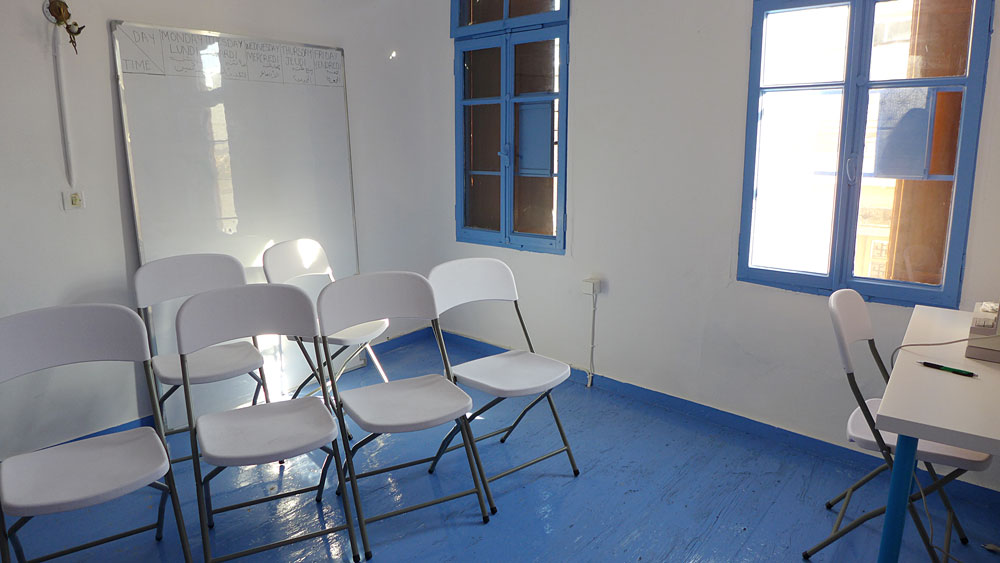
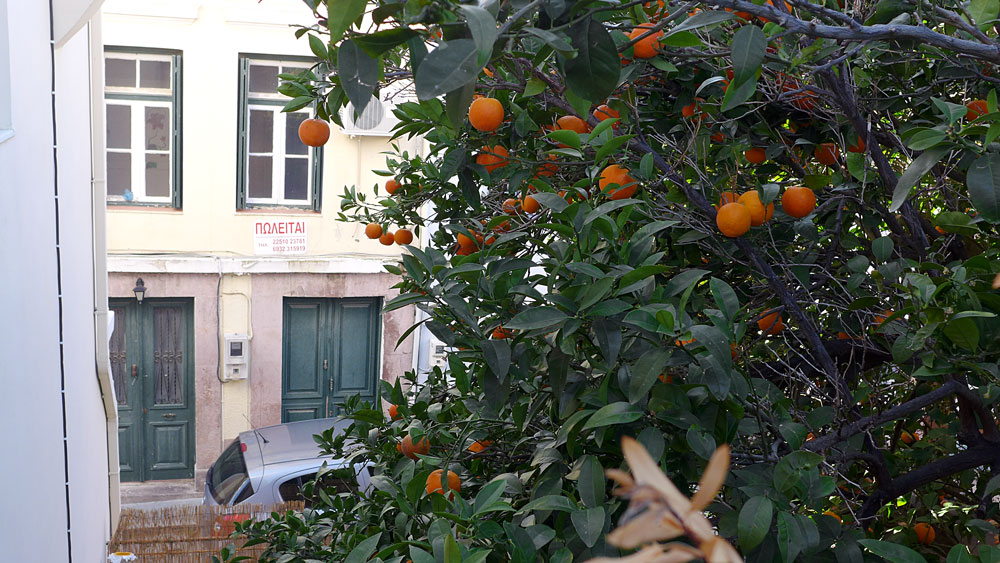
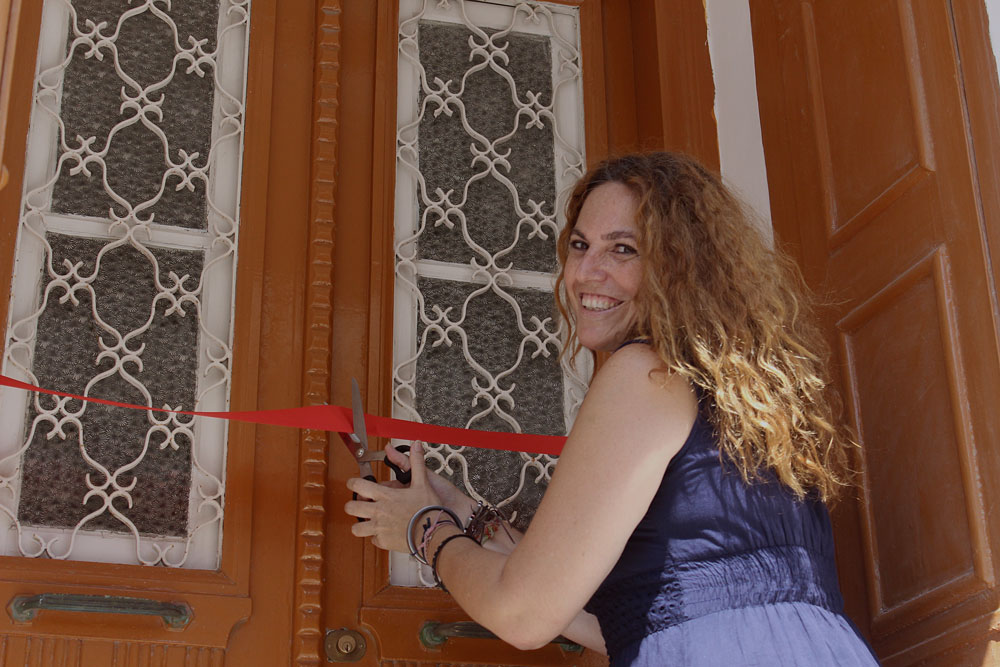
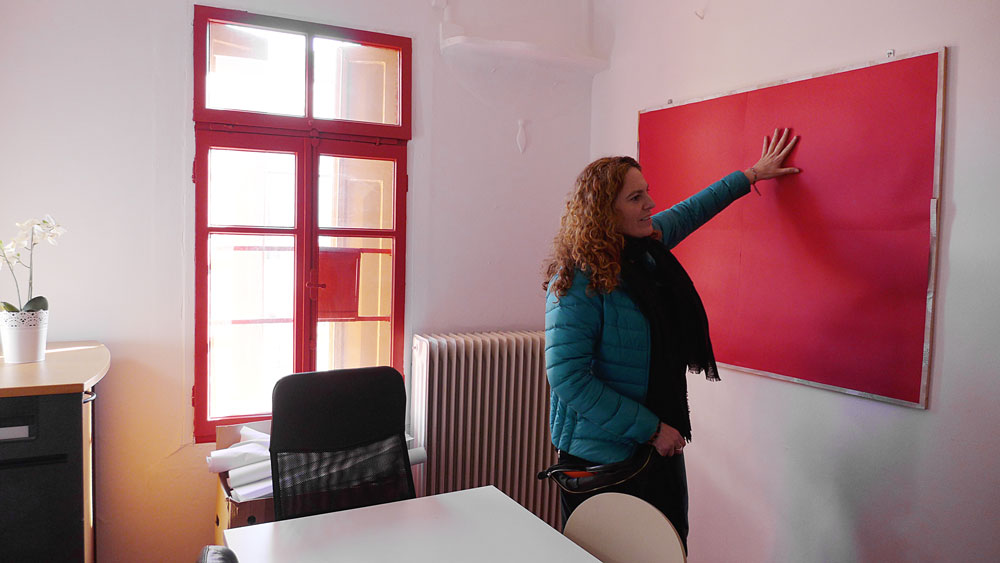
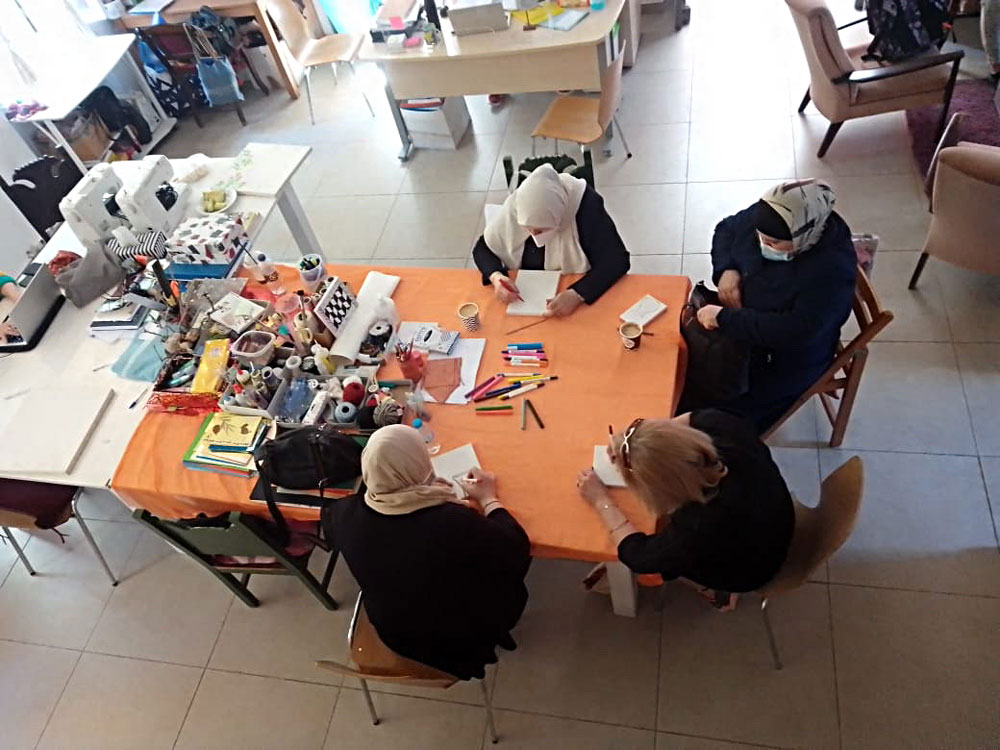
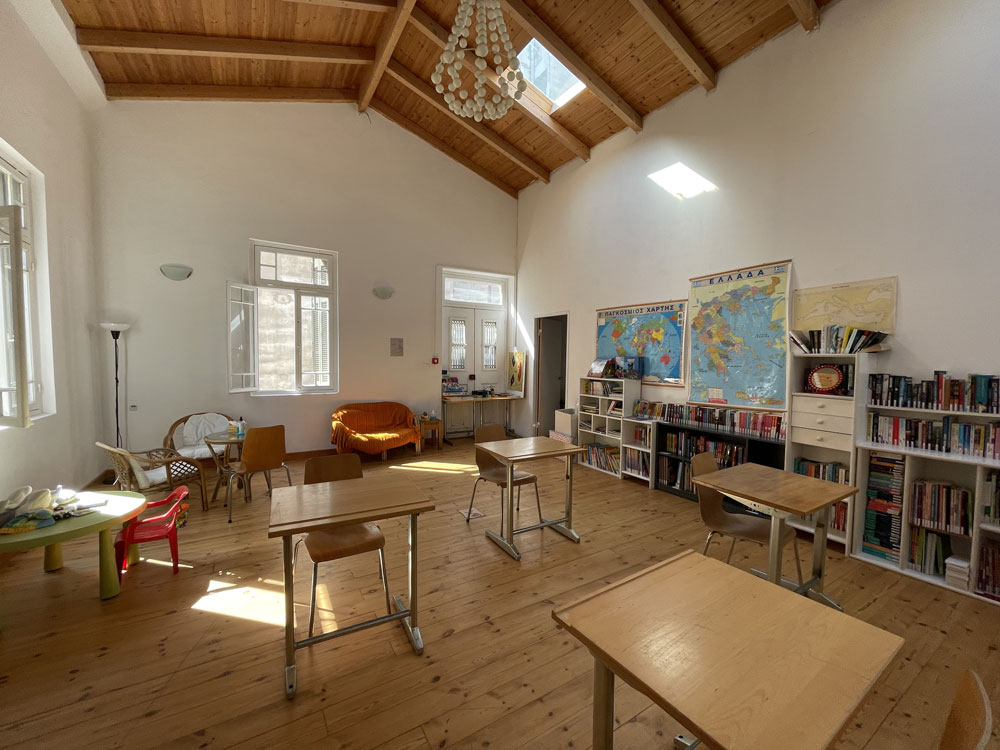
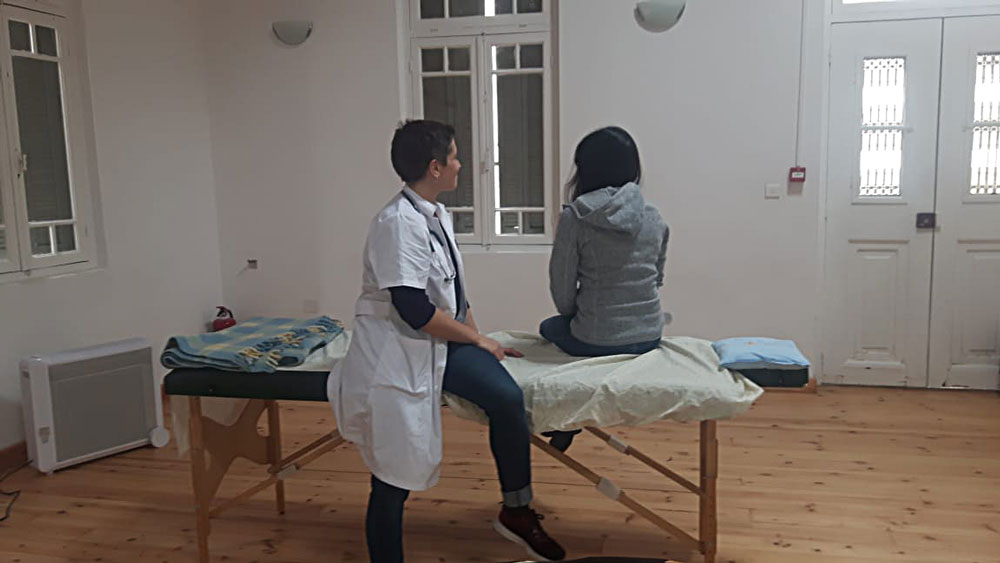
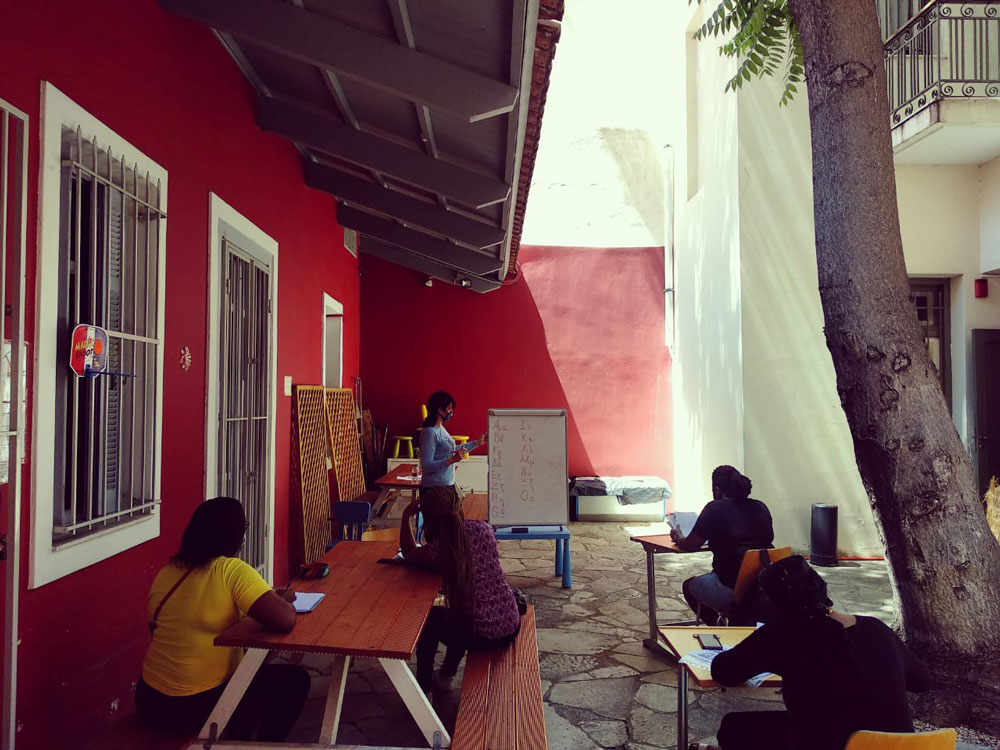

SAO Association supports these women on their way to a new, independent, and fulfilling life
We run two day centres for displaced women and mothers with their dependents: the Bashira Centre on Lesvos and the Amina Centre in Athens.
The two day-centres are meant to be places of security. They are above all safe spaces where the women enter and they know that there will be no aggression, there will be no men. No men, but also no other aggression either. We’re not claiming that women are not aggressive, but we’re claiming that we don’t tolerate it within our houses. That’s the concept of the safe space.
Men are not allowed to come to the centre because the main problem that these women have, or the traumas that these women have, are caused by men. They really need a place where they can be without being threatened. Sometimes in the camps, it’s really good when they have a place where they are completely free from having to look back over their shoulders and see if there is any fear, or is there any danger. A lot of women basically relax better in those safe spaces. And also open up more.
Men-free means more security.
They have a say with different tools like complaint boxes or anonymous comments or we have general assemblies where the women decide on something that the program could deliver for them. It is also a teaching space for rules of democracy, as we call it. And to stand up for themselves.
The safe space on Lesbos called the Bashira Center is the one that we opened six years ago and just had the anniversary party for. It’s quite a small house in the old part of town. The fact that it is eight kilometers away from the camp is already an instrument of empowerment because we empower the women to take a bus, to go to the city, to do other things in the city than just come to our centers. So for instance, there are NGOs offering English or Greek lessons where they can go and then also come to our centre. It’s a way of moving outside of the camp independently.
The Amina house and Bashira house basically are the same. What both centres have in common is that they have a professional psychosocial program. That means we have a professional psychologist there. The support is done by Greek people who are licensed there. This is also what makes our project expensive because many NGOs of our size work with a lot of volunteers. We don’t because we believe that the psychosocial service can only be done by professionals. And it must be local professionals because the social worker needs to know the system of the country really well.
We provide private sessions for women who need it. We do a lot of workshops that are not only information workshops, but also psychosocial workshops, meaning trying to find out through workshops how we can assist women best. On Lesbos, we do an English conversation circle because if the women don’t know whether they can stay in Greece, they’re not ready to learn Greek because it’s a difficult language. It’s a different written language from what they have learned, so they’re not ready to start with Greek. We do English conversation so that once they get to the mainland, they at least can communicate a little bit because many Greeks speak English quite well. So that helps them to move forward a little bit. Whereas in Amina, it’s a professional teacher that gives Greek lessons with a goal for every woman. Some of the women are illiterate, they never went to school.
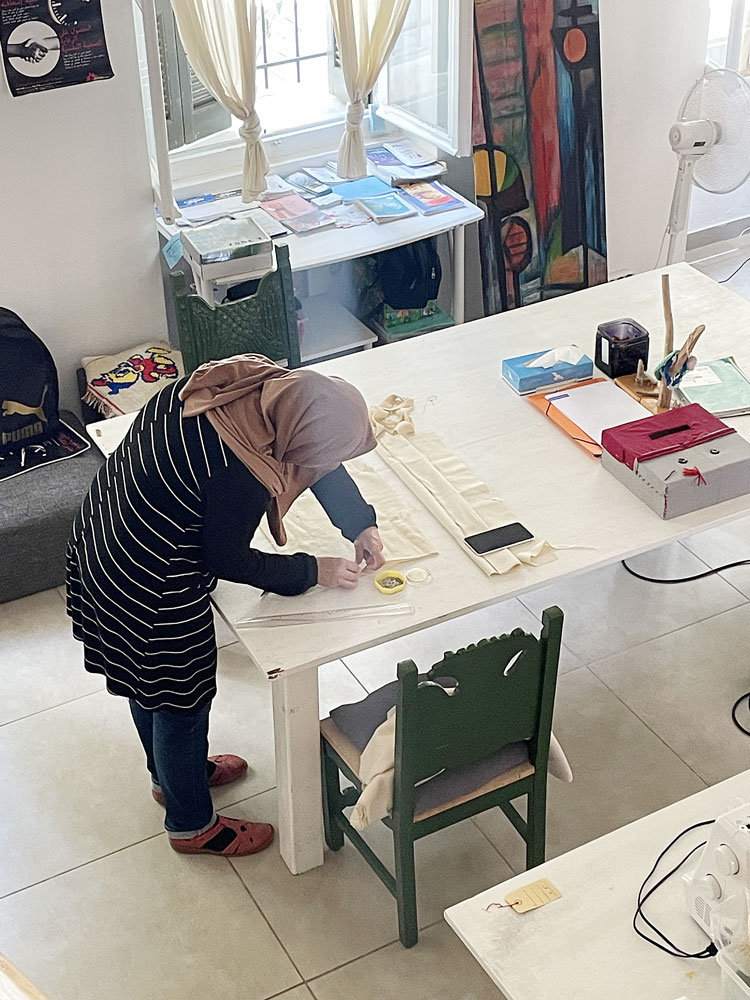
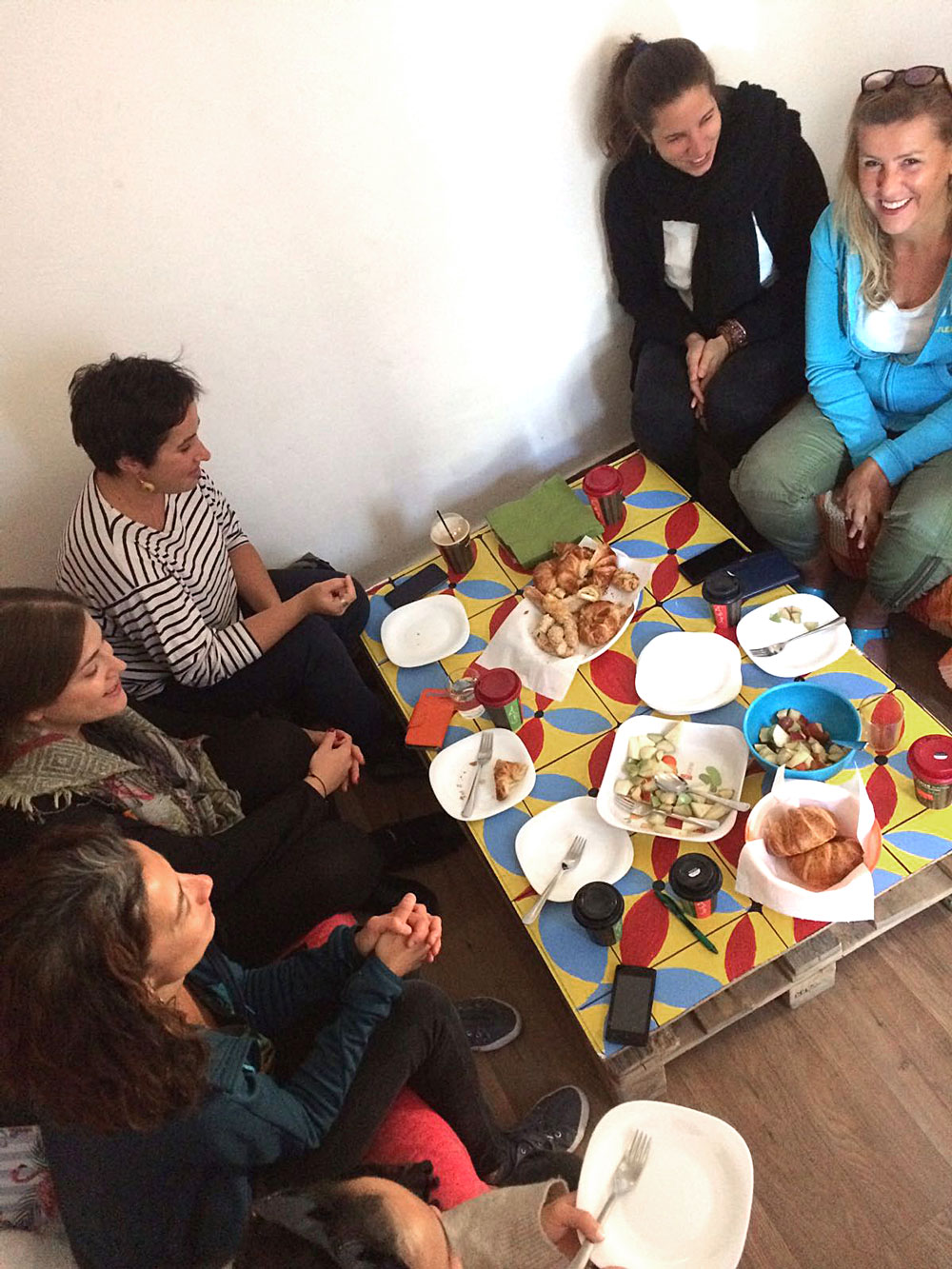
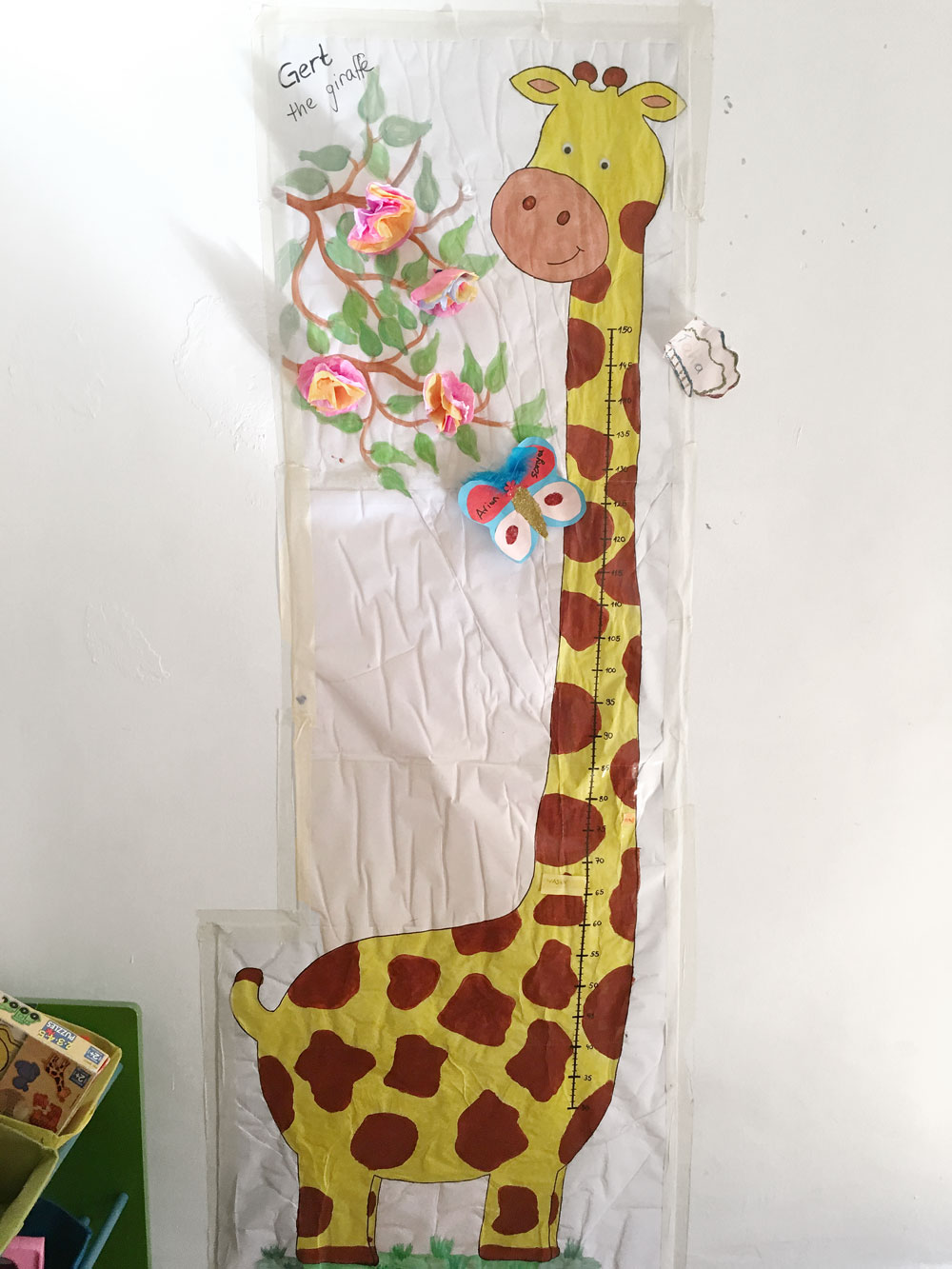
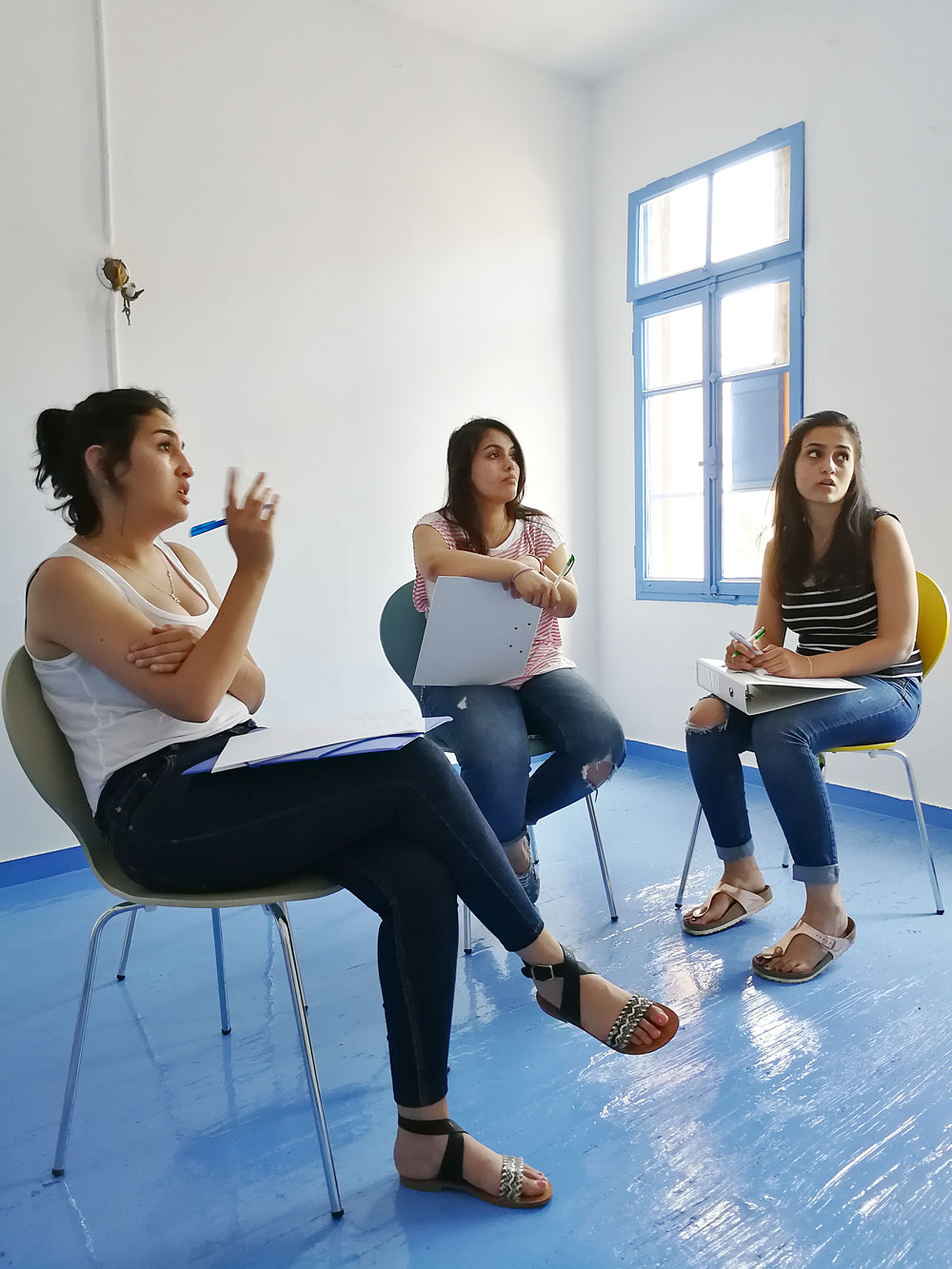
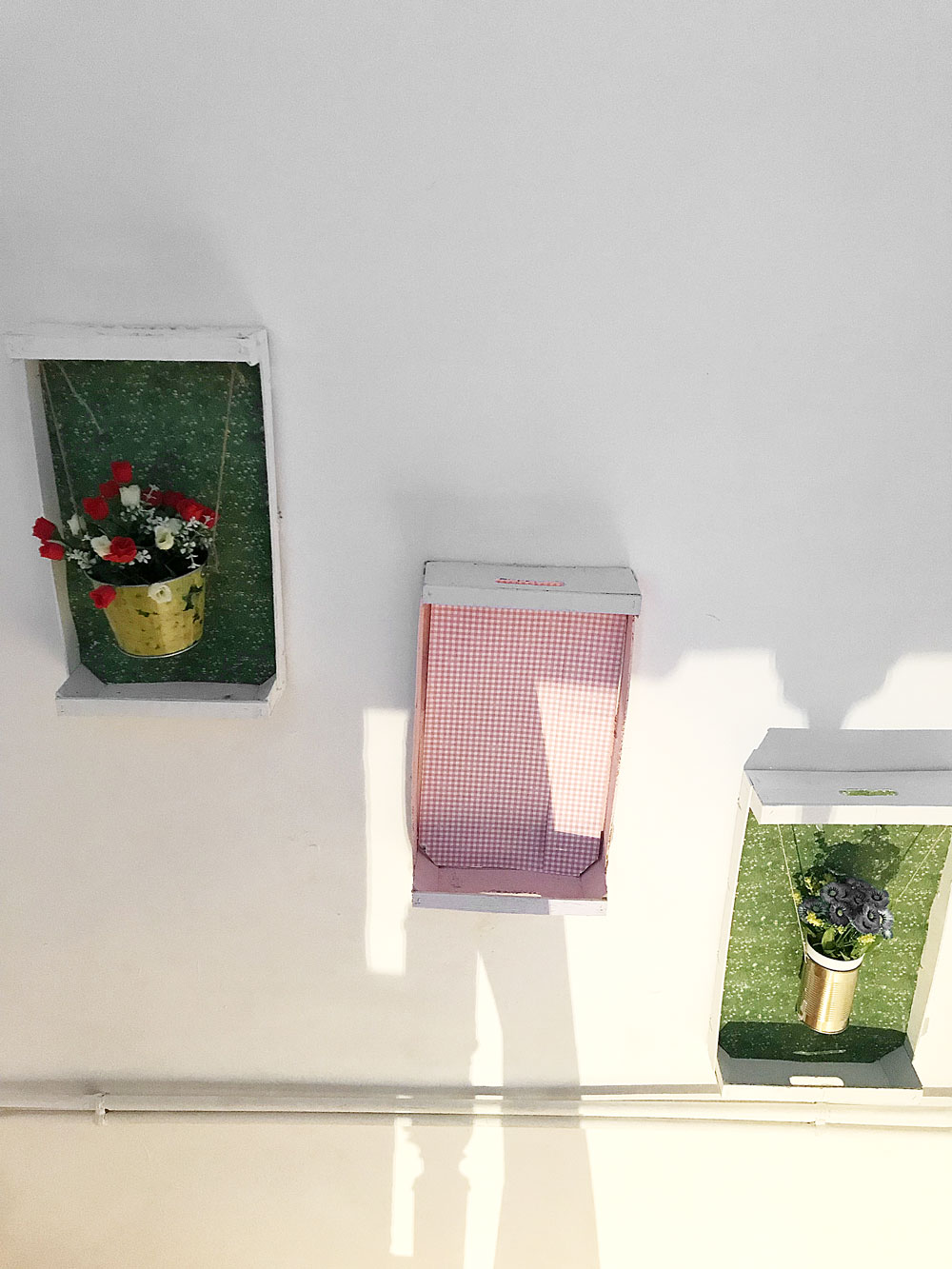
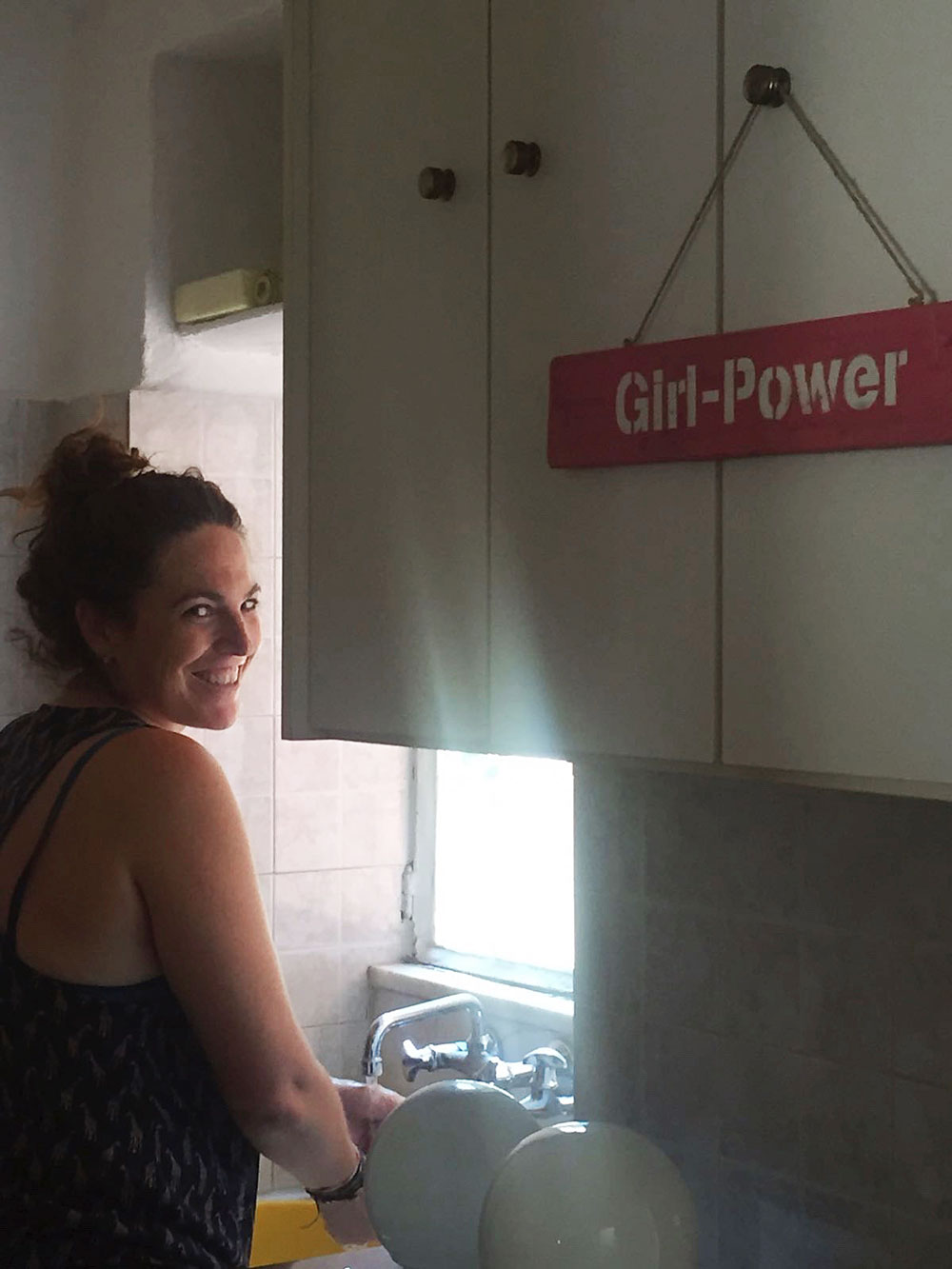
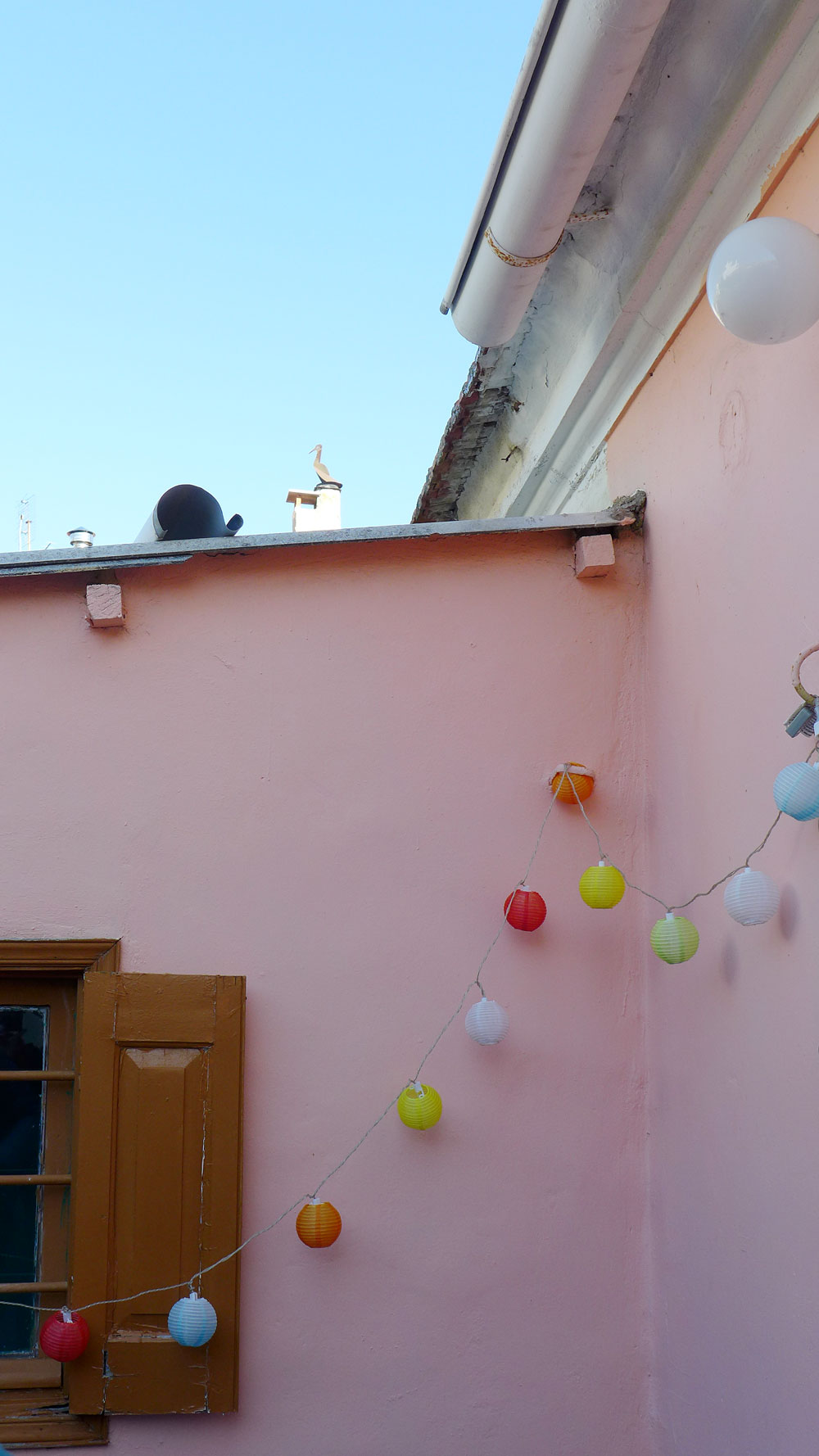
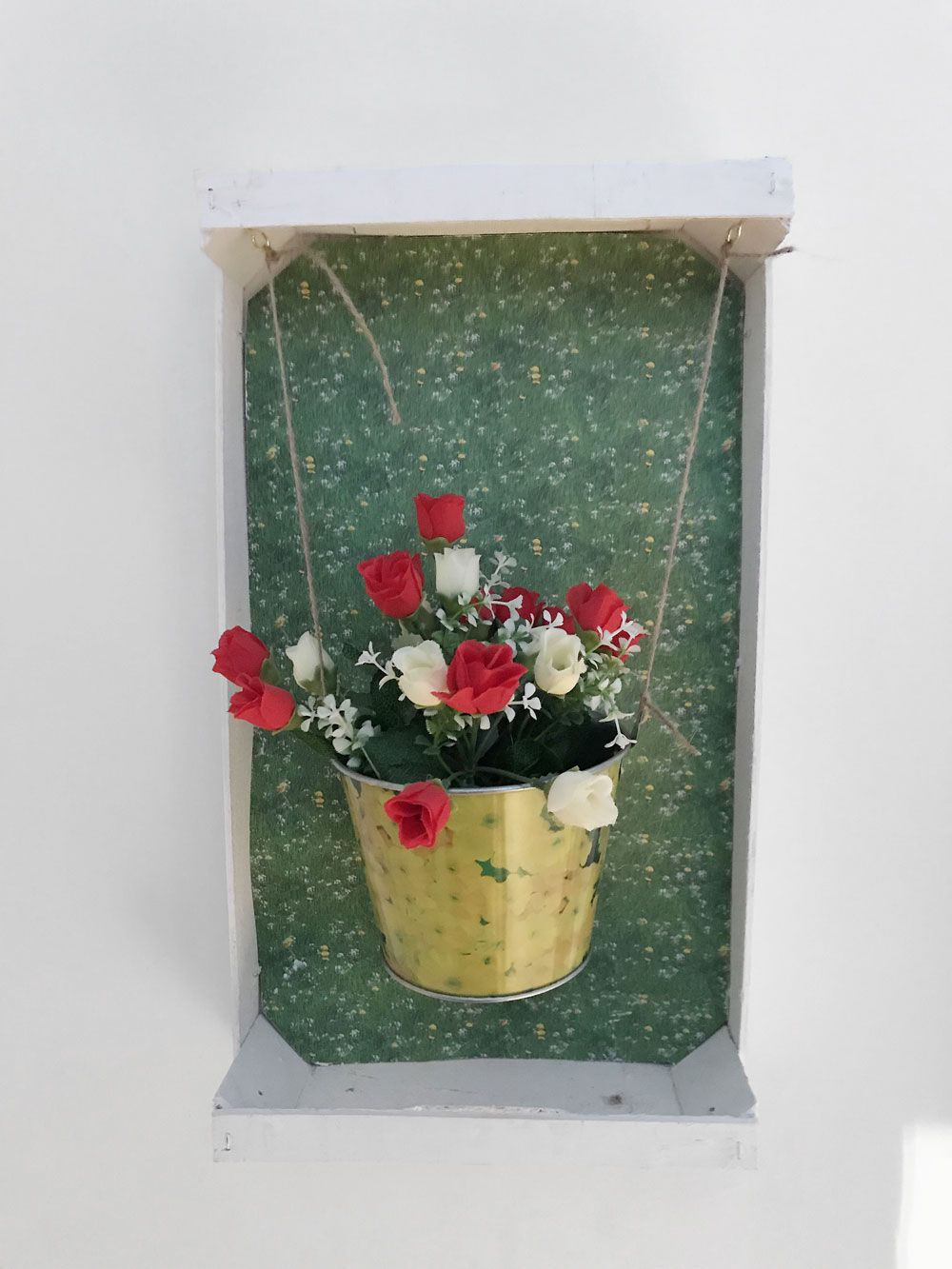
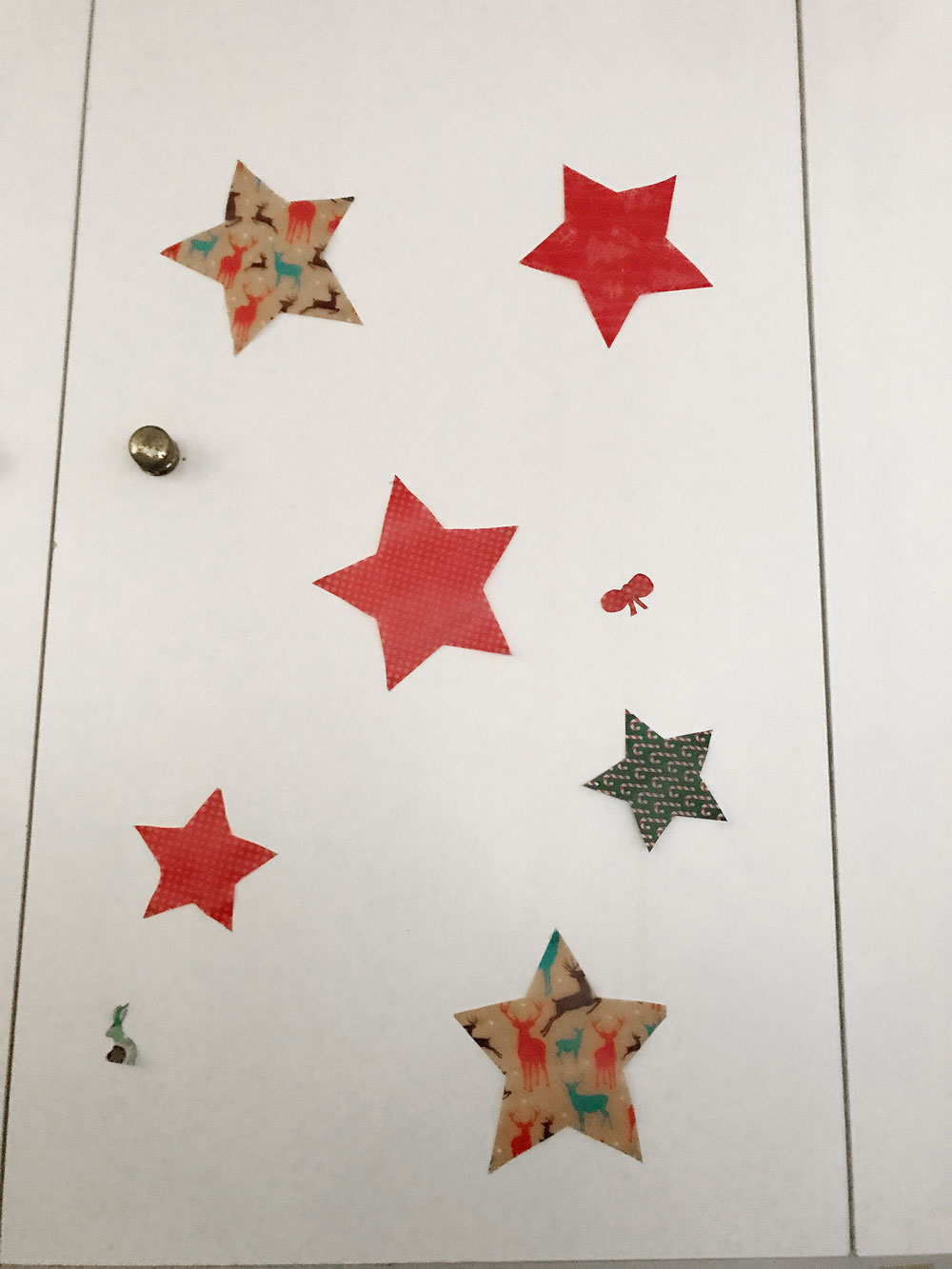
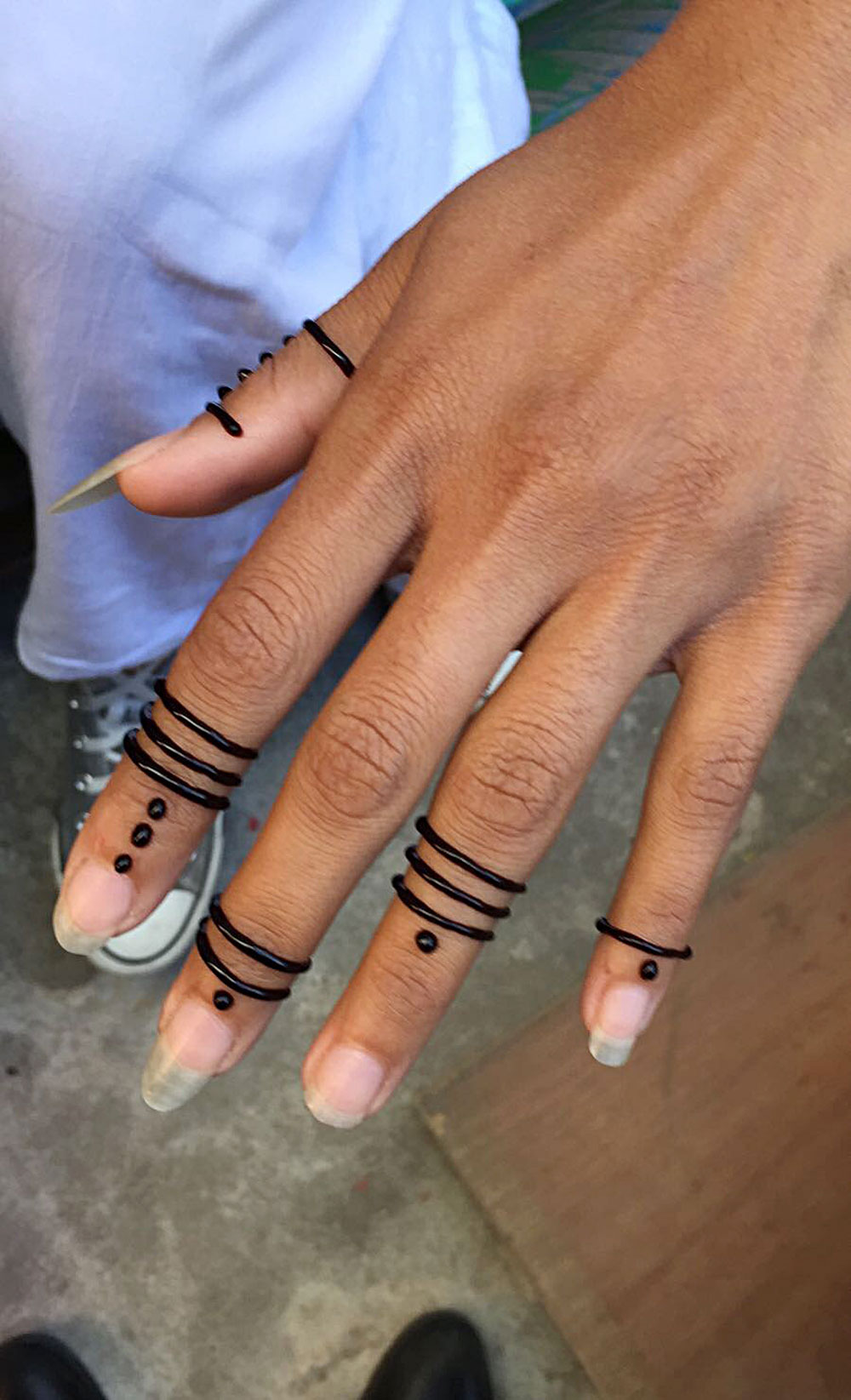
You told me that you try to encourage these women to decide themselves, for instance, what they go out to buy or to get some groceries or so you had the sort of system established?
Yes, one of the problems on Lesbos and also on the mainland is that the support that refugees get or asylum seekers get is not enough as regards food. On Lesbos it’s even worse now because some of the people, not only women, are deprived of food. If you are in the camp and you get asylum, the next day you’re not on the food list anymore because you’re supposed to go to the mainland. But most of these people wait for about a month at best to get the papers to even go there. So it’s a whole month that they don’t have food.
Also some people who have a second or third rejection are deprived of food and are barely tolerated in the camp. So there’s been big initiatives from all the NGOs on the island to provide food to these people. Other NGOs provide bags with food and those bags are typical of where the people come from. They’re a bit different for Afghani people than for African people or so on. This is already a big help. But within our concept of empowerment, we decided we don’t want to provide a food bag where I give you something and tell you to eat rice because there’s rice in there. We figured that we could find a better way to support these women. We talked to the local supermarket and we buy coupons from them so the women can go to the supermarket and buy what they need and what they want. So that again is a system of empowerment and of self-determination of decision making and also dignity.
But the sanitary topic is still not solved. The sanitary conditions in the camp when we talk about Lesbos are much better now. They have improved. But still there is not always enough non-food items. So we still provide the women with hygiene pads and also sometimes we have a big delivery of shampoo and things like that that we additionally hand out to them.
And these people who got rejected or they have no asylum agreed yet they have to go to the mainland?
No, the ones who are granted asylum have to go to the mainland. But they have to wait for their papers and then they have to go to the mainland. No, the ones who are granted asylum have to go to the mainland. They have to wait for their papers and then they have to go to the mainland. Then they need to start working there really quickly because the housing programs that were put in place are problematic. One has been cancelled completely, that one was especially for vulnerable people. And the second one that has supported people for some time with rent is currently on hold because they want to reorganize it. We’re very curious about what it’s going to be like because the old system didn’t work at all because people had to pay a deposit and the first period of rent and bring a contract, find a contract themselves.
So if you were on Lesbos and you get asylum, you don’t get food for a month. That means you need your money for food if you don’t get it from someone else. And then you’re totally broke when you get to the mainland. What’s more, in order to get into the new program that will support you, you need to have the finances to pay for two rents, a deposit and a first rent to even get financial support. The system is completely wrong. Before they closed it down for about three months to reorganize it, many of our women didn’t get support to pay the rent. So they were actually kicked out of the apartments again because they couldn’t pay for them. Obviously, if you’re a householder, you don’t want anyone who doesn’t get money from the state and doesn’t have it themselves. So it’s understandable. Integration is then very difficult.
In the meantime, many things happened. You got an award from the Red Cross. You had the six-year anniversary of your institution of your houses. Can you talk about these really positive events and acknowledgements?
Well, we got the Red Cross Award 2023 from the Swiss Red Cross. It’s given every two years. That was really big for us and we were very excited about it. I think it’s very nice recognition that also helps us to obviously fundraise and get more attention, which is really important because next year we won’t have any state support anymore.
And I saw you were a TED Talker, had a TED speech?
Yes, that was last year in November. But it appeared on YouTube only this year. The important message is probably the title, where I say that the women we deal with are survivors not victims. Because we very often see in our projects that we talk a lot about the fact that there are very vulnerable women who have had very serious and tragic experiences. But the fact that they come to us for help, and they want to move forward means that they are actually the strong ones. Resilient. They’re very resilient and that’s how we experience them while working with them.
You said earlier you were there on the coast and you met this group of women, with their grandmother. And you lived with them. Yes. Can you tell us where are they now?
They all went to Sweden in 2016. They made it. Yes, they made it to Sweden. And grandma died in 2020 of Corona. We’re not very sure, but we think she was about 98 at the time because her date of birth is not really clear. In Syria at that time, they only registered the children if they made it to three years old because many of the children died before that. So we think she was about 98. The three sisters are all studying, they have all finished their studies this summer. The second and the third ones are married. I went to the wedding of the second one in Sweden last summer, which was really nice. I’m in regular contact with them. They’re a little like my Syrian daughters or nieces or something of that kind, but it’s really a kind of a family, of a family contact that we have.
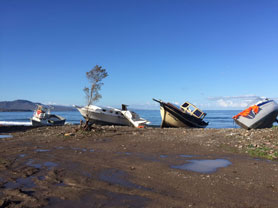
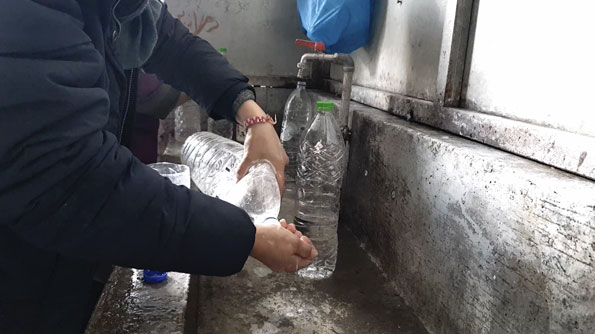
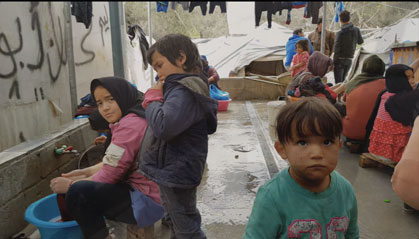
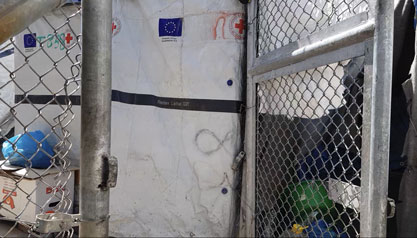
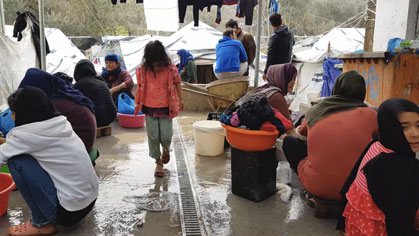
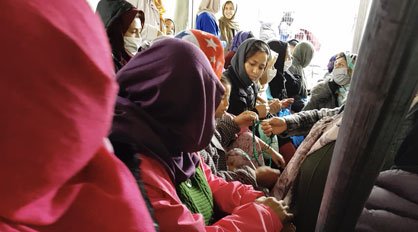
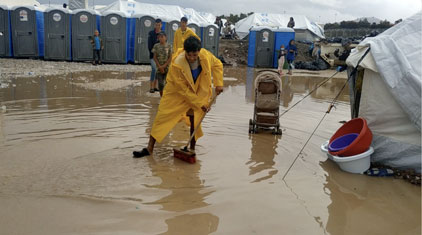
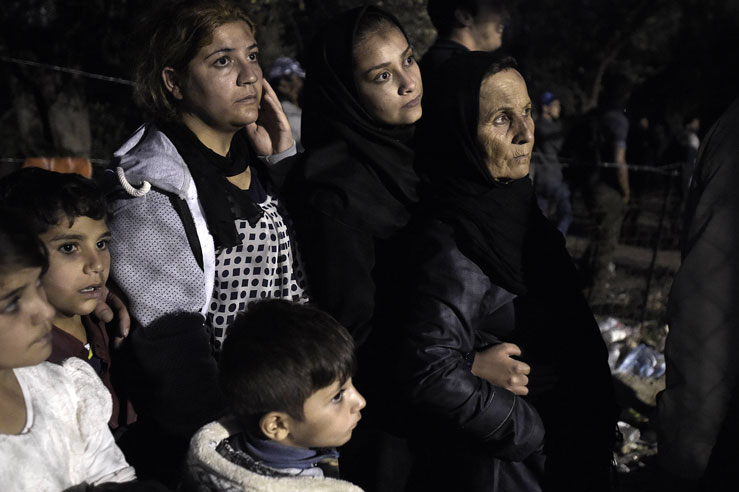
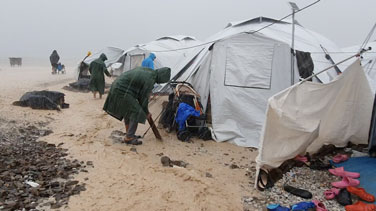
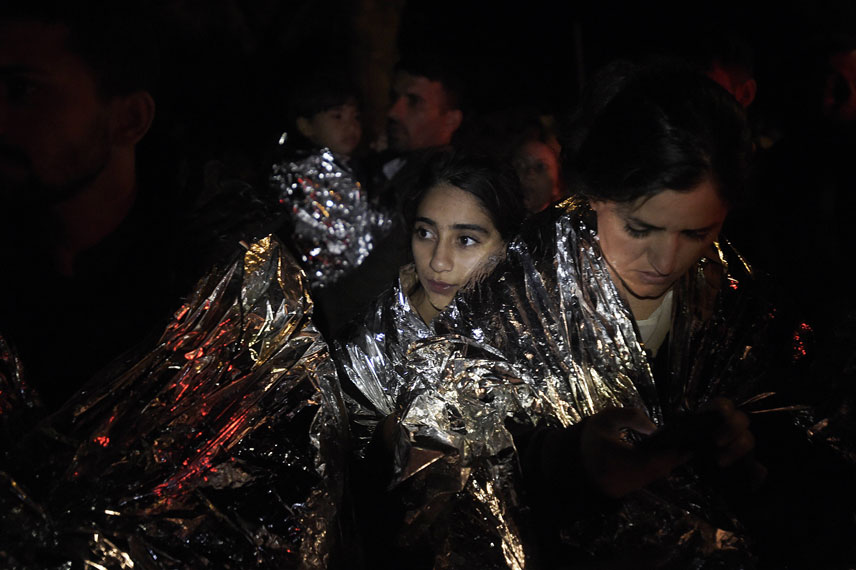
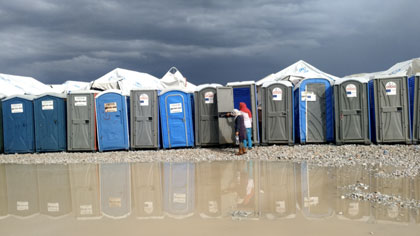
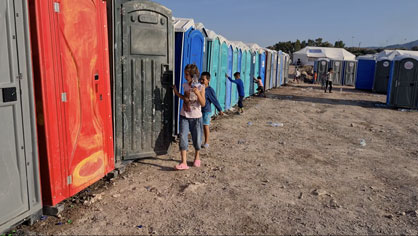
So it’s a full success.
Complete success, yes, but still very hard for them. They still don’t have residency in Sweden. And that is connected to the fact that they studied. If you pay your own way, then you can apply for residency. But they didn’t do that, though they can now because they have jobs. But it is six years that have been very, very hard for them. First of all, to do a Swedish matura, then to start studying. And of course, first it was very academic studies that they started. They realized it was a bit hard for them because the language is an issue.
For instance, Ruha, the eldest one, was studying politics and she couldn’t keep up, only because they had to talk about an article that they had read in the newspaper. By the time she understood the article, the others were far gone. It also turned out that with this subject, she would never get a job, a secure job. Just working here and there a bit, maybe for a newspaper about politics or suchlike, whatever you can find. So she had to look at the whole thing from a completely different angle and say, okay, which job in Sweden would I definitely get employment with? And then decide, okay, that’s what I’m going to study. So she’s a radiology nurse now. Okay, again, she had no choice. But she likes it. I think Corona led to a change of mindset. She was really impressed with the medical system during that time and began to get interested in it. She also became interested in this subject more and more because she was the one who had custody of her grandmother because her parents didn’t speak enough Swedish at that time. So she was the one in charge of grandma and had to deal with all the officials when it came to her health.
Who are they married to?
They were married to Kurdish men. One of the husbands has been in Sweden since he was four years old, so he’s Swedish. I think getting married to someone who knows your culture makes it easier, especially when you live in a totally different country. It’s a bit like coming home in a country that has a very different culture. It helps to have the same roots or the same ideas or the same background.
Great. With all these women coming through or being at your houses, do you have any follow up from them or do they just disappear on a certain day?
Sometimes we do, sometimes we don’t. It depends on the woman’s wish. Some women don’t tell us that they’re moving forward. They just go. Maybe you can tell because they say goodbye a little more intensively one evening and then you think, okay, she’s probably not coming back. Some write to us much later. We have just had a case where a woman went to Sweden. Sweden is like Germany, a bit like heaven for refugees, seriously. In their heads, in their ideas. So, she went to Sweden and she wrote an email to our field director saying, please, please, please tell all the women Sweden is not what we think it is. It’s really, hard. Tell the women to stay in Greece and continue and not give up on everything they have achieved there. They will have to start from scratch and it’s very hard. So things like that also happen, or sometimes somebody comes back and says, I’m coming to visit a friend who stayed in Greece, so I want to come and say hello. But mostly they move on in their lives and that’s actually a goal achieved for us. If they feel strong enough to go and leave us behind, then it’s actually what we want them to be like.
The question, that remains is: “What can we do? How can we help?”
I think money is still the best way to help, actually. Because we have professionals doing the work, financial support is the best way to make it possible to pay those professionals. And by the way, I forgot the most important ones, and those are the translators. They’re women from the communities that speak either Greek very well because they’ve been in Greece for a long time or they speak English very well and translate in English to our stuff. These are people who are allowed to work in Greece and who have a proper salary. Many organizations work with refugees who volunteer, volunteer as translators for them.
We talk about female solidarity. When you have ,for example, a society of psychologists, their members have to pay an annual fee. If 20 francs were added to the fee it would pay for the salary of a psychologist in Greece. That’s an idea that I have in mind that would be really nice. Imagine, for a psychologist in Switzerland paying 20 francs a year more for their annual fee would be quite easy.
And to us, it would really help a lot if that happened. That’s a kind of of professional solidarity. Supporting other professionals. That’s a goal we want to achieve.
That’s a really good idea. A nice strategy. It would be a repeated donation?
Yes, absolutely. That would help most. Because that is the big challenge when we talk about fundraising. There is very little of our annual budget comes in for sure. It’s only the memberships of the SAO association.
And the rest we don’t know. So to make a forecast is really difficult, which makes it really stressful. We have some experience now. We know which month of the year we’re likely to have more money coming in or less money coming in. We can use that experience now much better. But it’s always a challenge, of course.
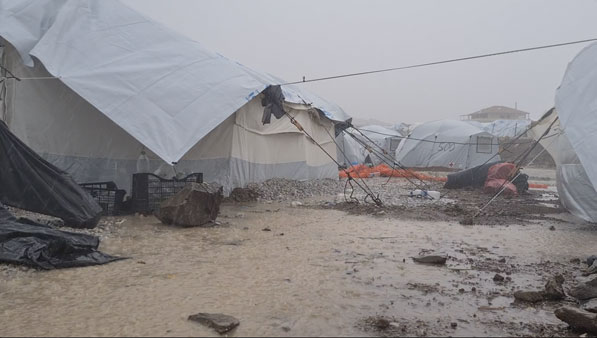
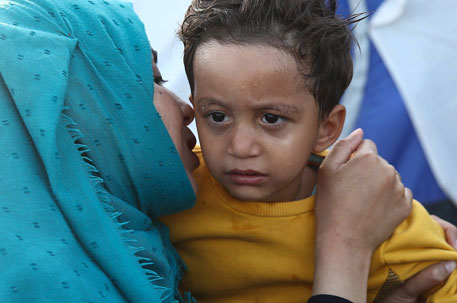
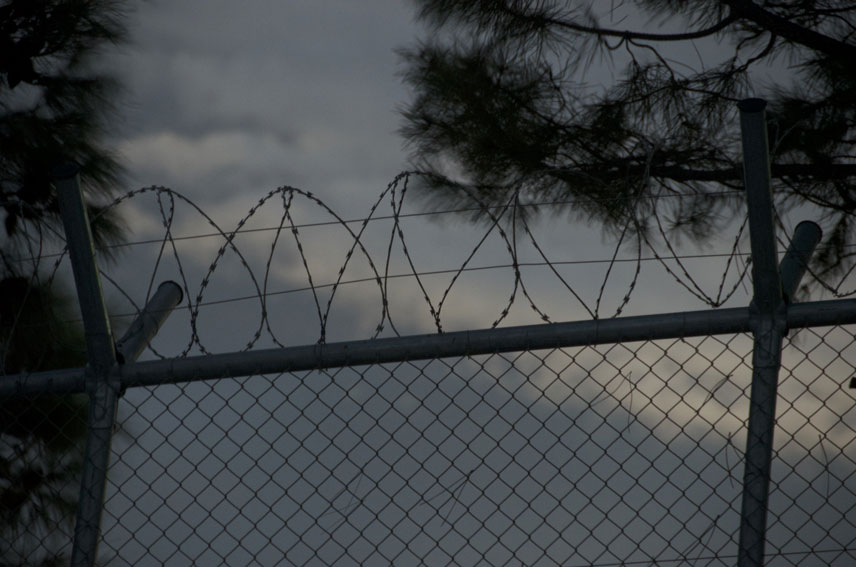
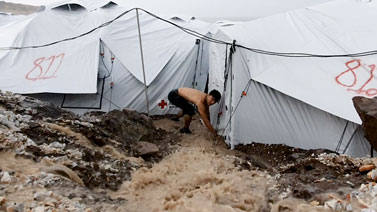
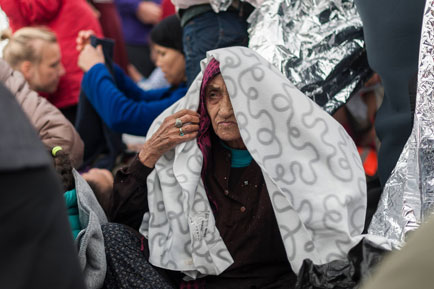
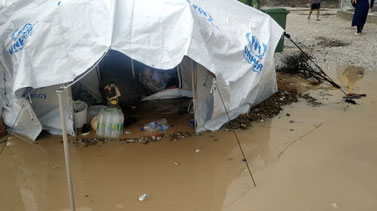
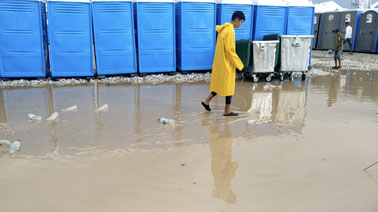
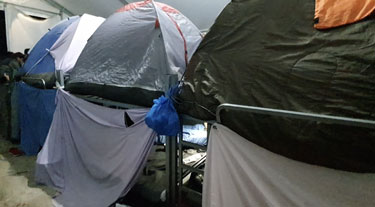
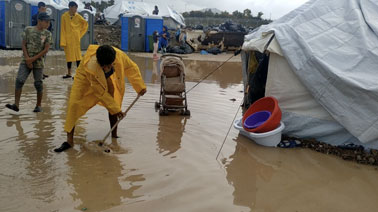
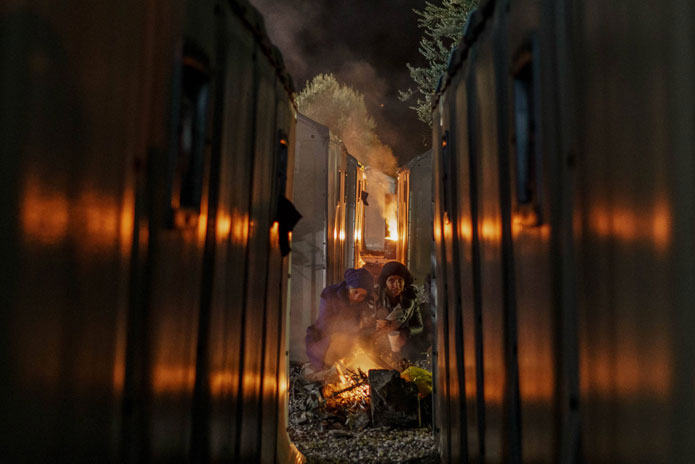

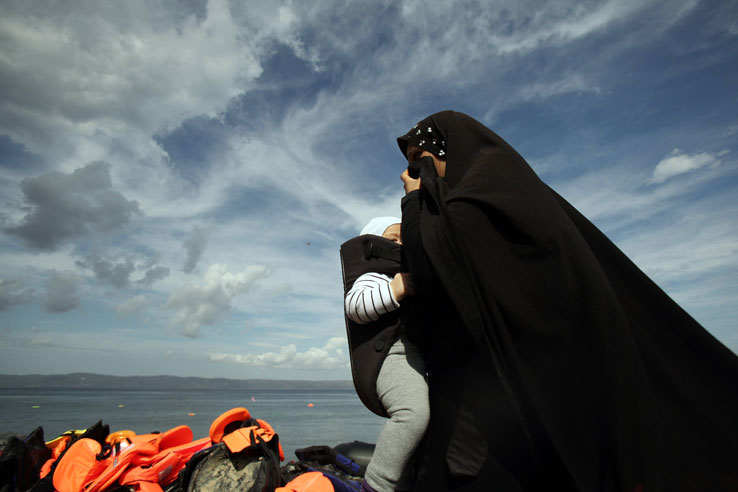
Photos on this page provided by: Jojo Schulmeister, Refocusmedialabs, Nikos Palos
Is there something you would like to just put as a sentence to finish our talk decently this time?
I have just come back from Greece. And I think I am even more optimistic now because I was in the Baschira Center, I was in a team meeting. It was so touching that these women working there sit together. At the moment, they’re in a situation where they don’t know who will be suddenly sent to the mainland, within two hours sometimes. So they’re going through every woman and checking who has information about her. If they don’t have information, they decide who will call her, find out whether she’s been sent to the mainland. They make sure they have internet data that they can send them so that when they’re on the mainland, they can stay in contact with them or they can start getting in contact with Amina. And Amina then gives the feedback. OK, she has registered with us. Then they can close the chapter for them. So they’re really going through every single client very thoroughly. It was absolutely amazing because so many women leave the island and so many new women come but they keep track of every woman. You hear the name of one woman and everybody knows who that is. That was extremely touching for me. So, I can feel 110 percent proud of the work that is being done in both of our centers. Absolutely. It’s fantastic.
Super. And I read a post of yours. You said we had this sixth anniversary. There was lots of laughter and lots of dancing. And I thought that’s it. That’s what you achieved.
Thank you very much for the talk. Thank you. Thank you for what you’re doing. Thank you for the light you’re shining on these women.
